EN

The rentrée brings with it a new wave of programming in the city's largest theaters, so we spoke with their directors to learn about the map that audiences will be navigating this new season.
Miguel Guedes — Artistic Director for Coliseu do Porto AGEAS
As he begins the final year of his first term, Miguel Guedes takes stock and notes that “in these two and a half years, we have achieved some very important things in terms of urgent matters.” “On the one hand, the building’s roof is completely new, and we are going to start on the remaining structural maintenance work. On the other hand, we managed to prevent this room from being concessioned to private entities.“ But the Coliseu did not live on ”urgent matters“ alone, since, alongside the struggle for maintenance, it also launched a program that ”has its own character, but also has enormous respect for what has been done." “And in these 83 years of history, the Coliseu has been a house of diversity, democracy, and inclusion. I believe we have fulfilled this sense of public interest with the diversity of our programming, with the creation of an educational service that is a cornerstone of how people view us, and with a vision of networking with partners around us.”
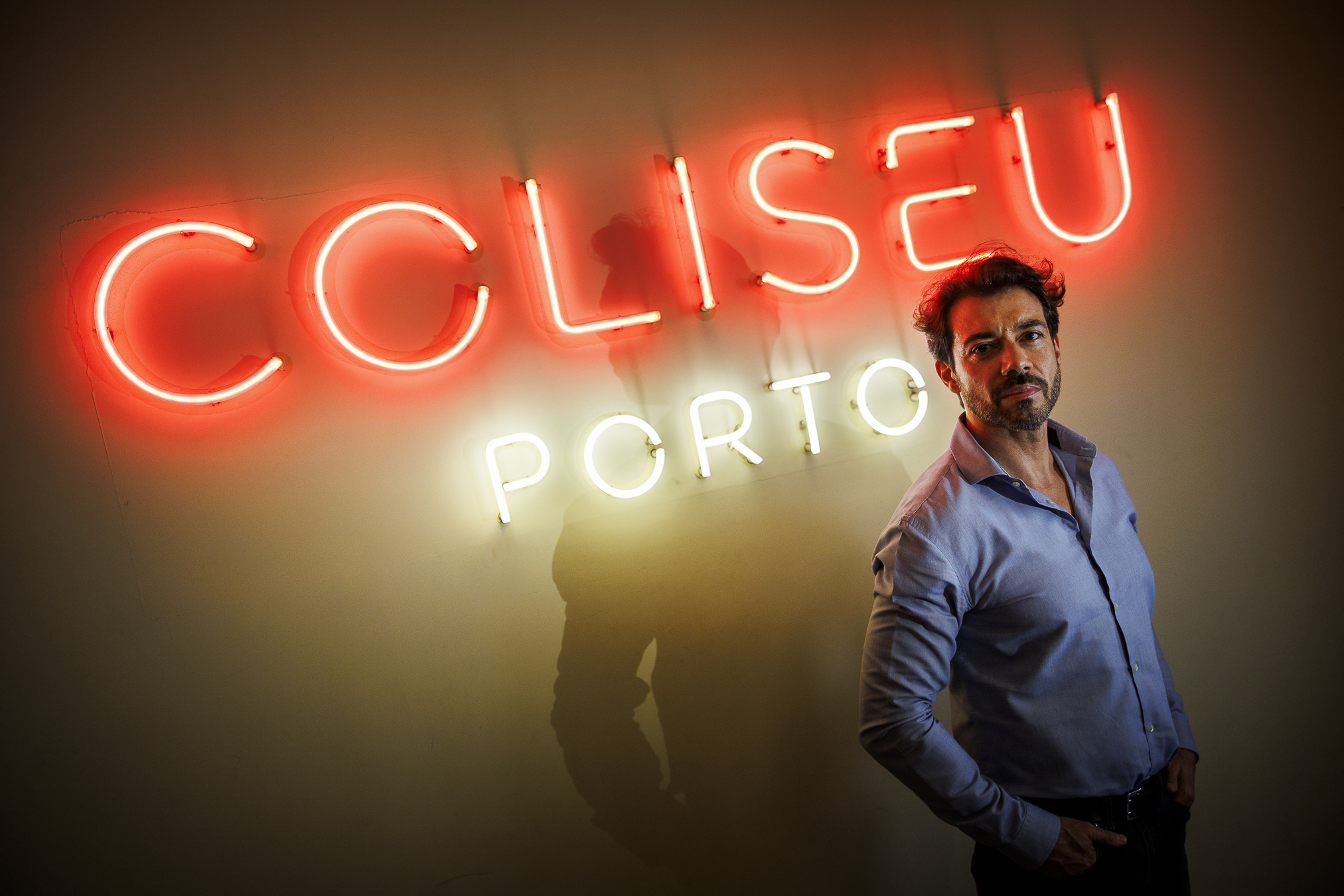
© Guilherme Costa Oliveira
The new program will include a moment to remember a special moment from those 83 years: when, 30 years ago, the city took action to prevent the sale of the Coliseu to the Universal Church of the Kingdom of God, which wanted to convert the venue into a place of worship. Miguel recalls “that hot summer of '95” when “some even literally chained themselves to the Coliseu, but we were all committed to the mission of rescuing this venue, so that it would not fall into the hands of any private entity, whatever it might be.” It was at this time that the Associação Amigos do Coliseu do Porto (Friends of the Coliseu do Porto Association) was founded, responsible for purchasing the building and still its managing entity today. The moment will be marked on stage on October 30, with a tribute to the personalities who made this rescue possible, featuring a concert that includes Sérgio Godinho, Pedro Abrunhosa, Óscar Branco, GNR, BAN, António Pinho Vargas, and As Amarguinhas.
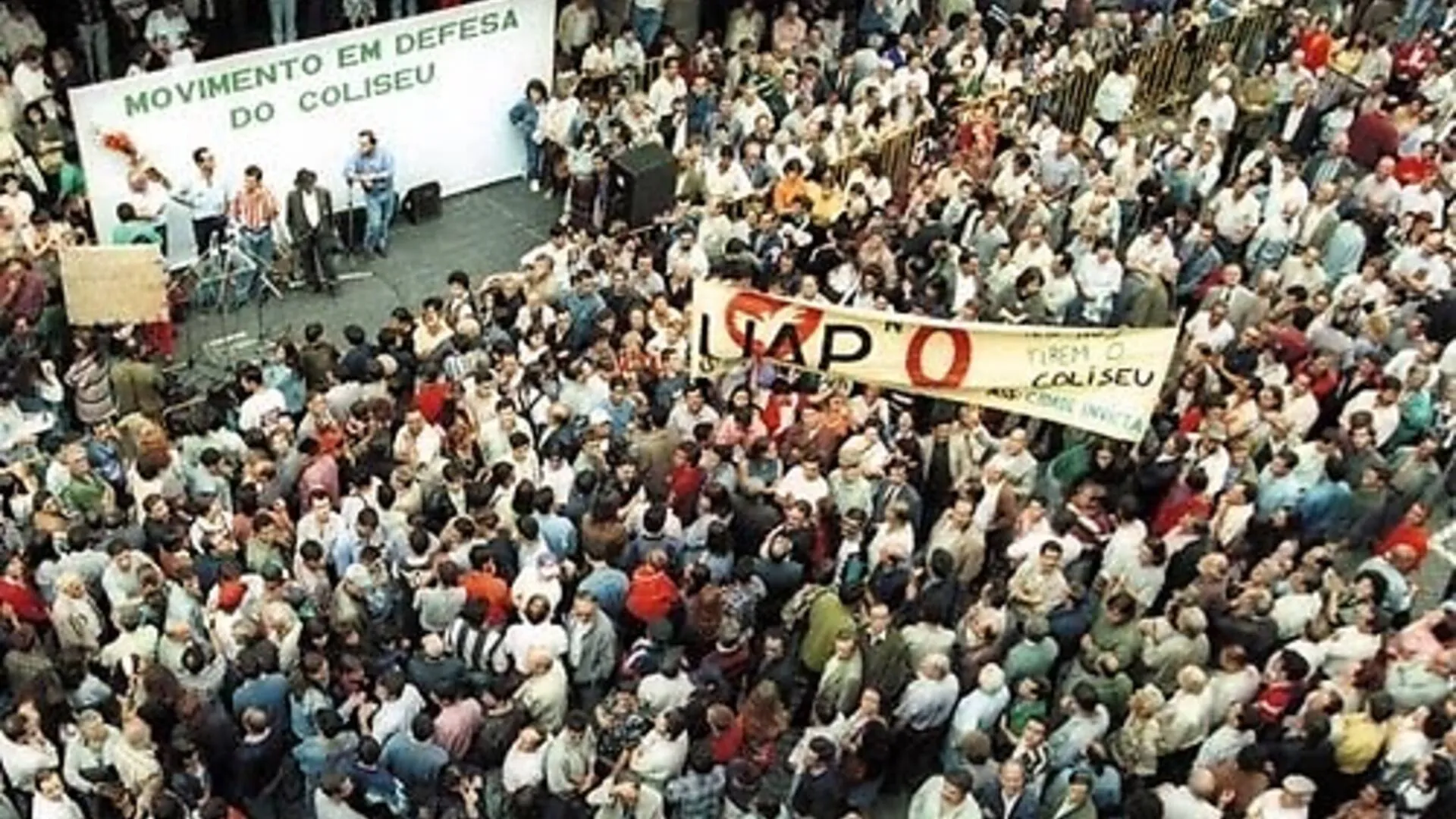
Popular uprising in defense of Coliseu do Porto, in 1995 © DR
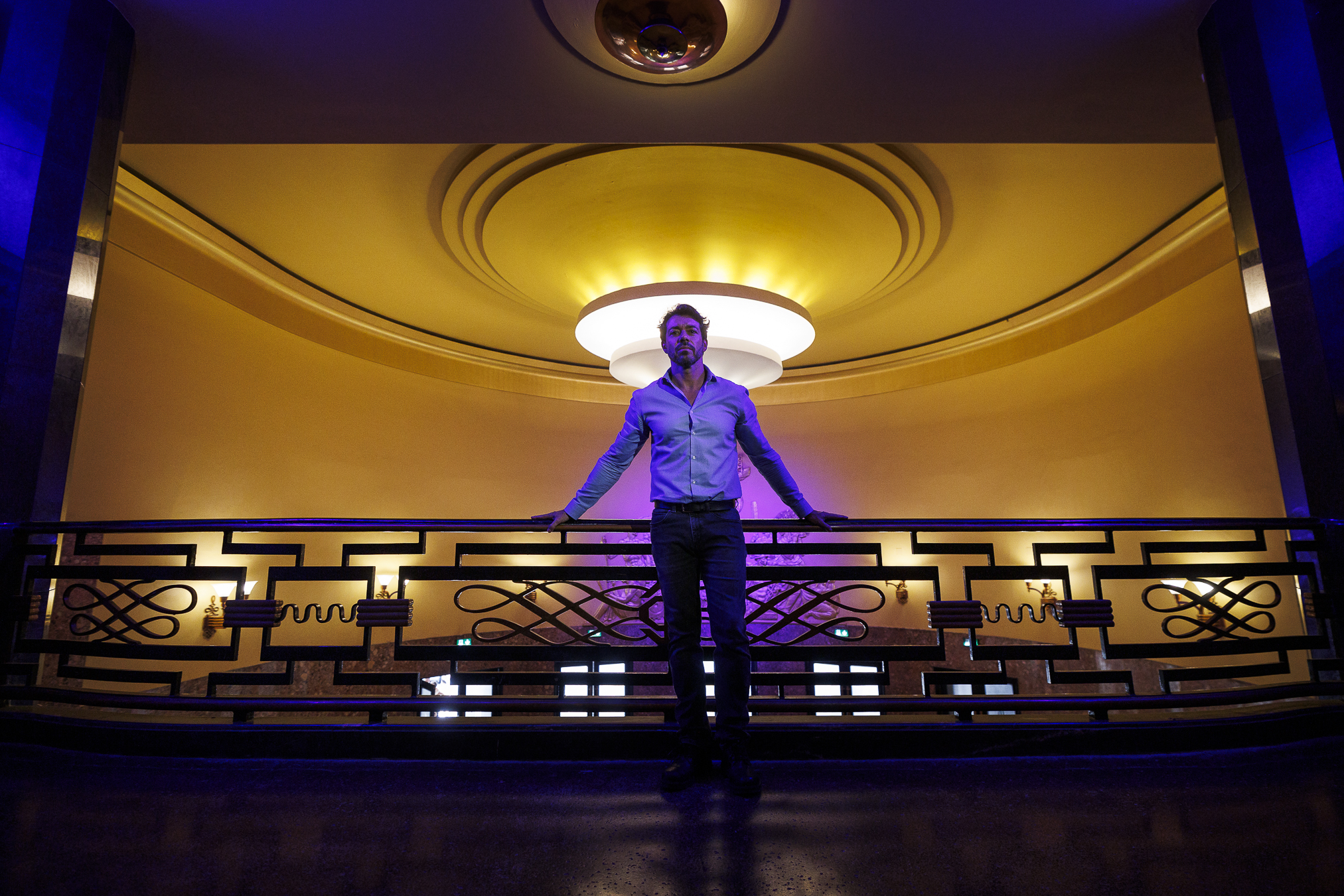
© Guilherme Costa Oliveira
For this new period that is beginning, Miguel conjures up the image of a “cultural valley” where the Coliseu is located: "We are in the middle of an area that stretches from São Lázaro to the Soares do Reis National Museum, with around 20 or 30 cultural institutions on either side of the Coliseu. In addition, our status is somewhere between private and public, which can make us a privileged interlocutor in a global network."
One of the artistic director's highlights is ELO—a cultural, social, and inclusive project now in its third edition. This project works closely with partners – in the first edition with the Irmandade dos Clérigos, and in the second edition with the Associação Comercial do Porto – reaching out to the most vulnerable sections of the population and offering them artistic creation as a form of integration. In this third edition, starting in October, the central theme will be adolescence, and the work to be developed “with a large number of partners, performers, and creators” will have complete autonomy for rehearsing and creating an artistic work – culminating in a public exhibition at the Coliseu. In a similar vein, the “Alquimia” project will begin in September, involving the older residents of downtown Porto, with a focus on situations of loneliness.
As for the musical program, Miguel Guedes highlights the concert by electronic music duo Kruder & Dorfmeister (September 26)—this will be the first time that a concert produced in partnership with promoter Os Suspeitos by Mr. November will be held in the main hall, having previously been held in the smaller Salão Ático.
Finally, Miguel Guedes also highlights a show of Broadway hits performed by the Portuguese Symphonic Band (September 12). “This could be a classical music show, but we realized the need to attract new audiences – perhaps even grab them by the collar. That's why it's necessary to provide a good experience, perhaps even a little more popular at first glance—a concern we also have with the Promenade Concerts [which bring audiences of all ages closer to classical music]."
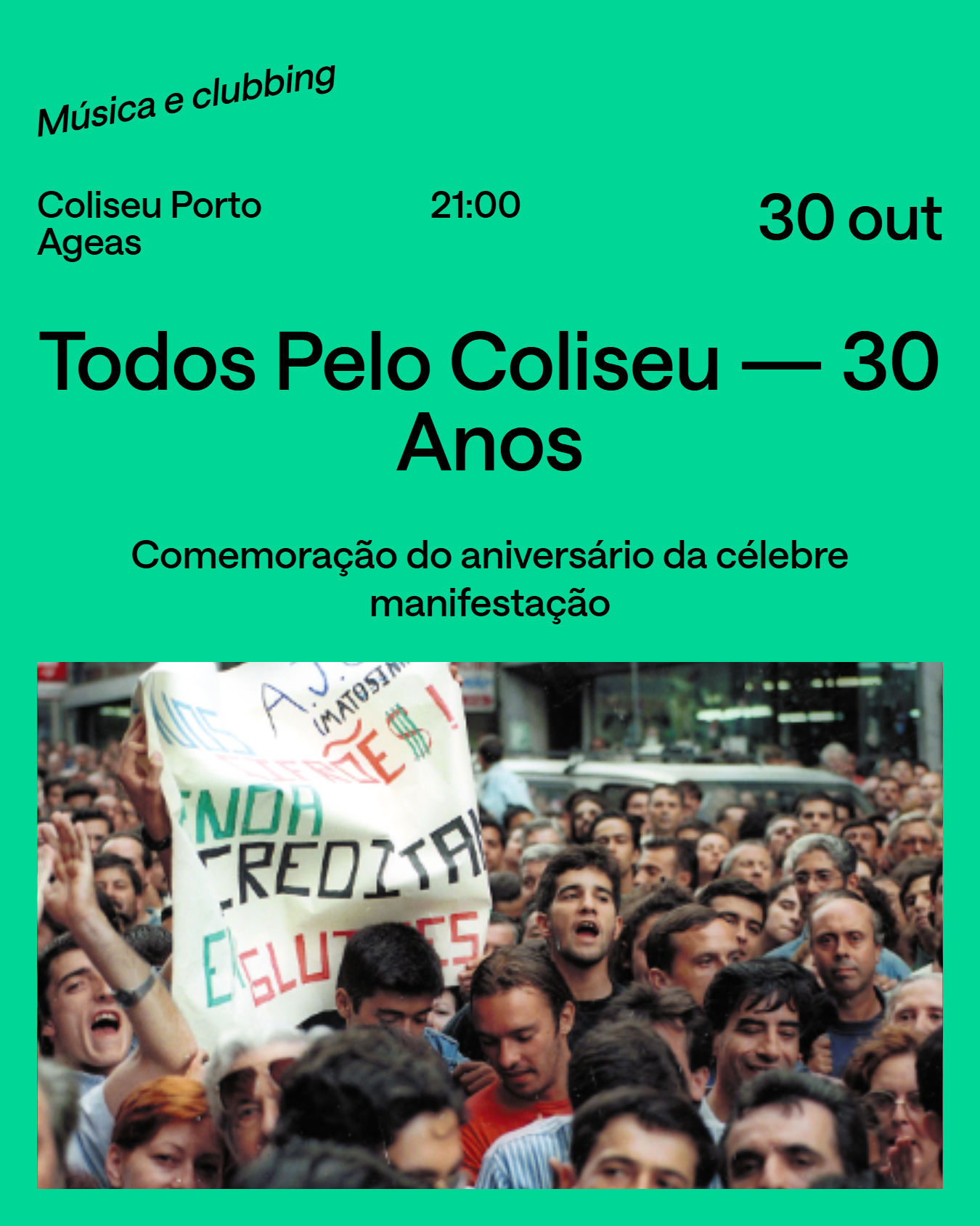
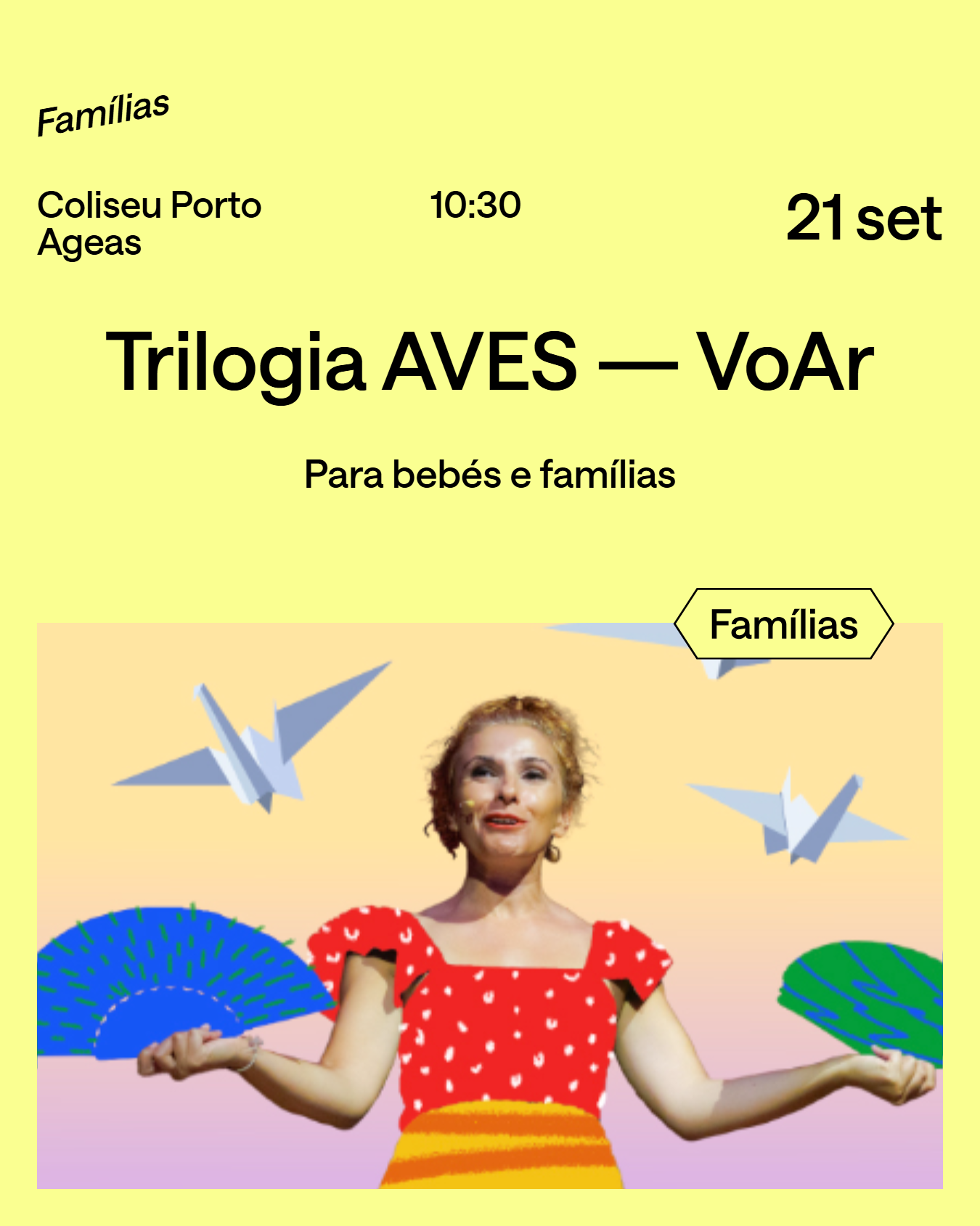
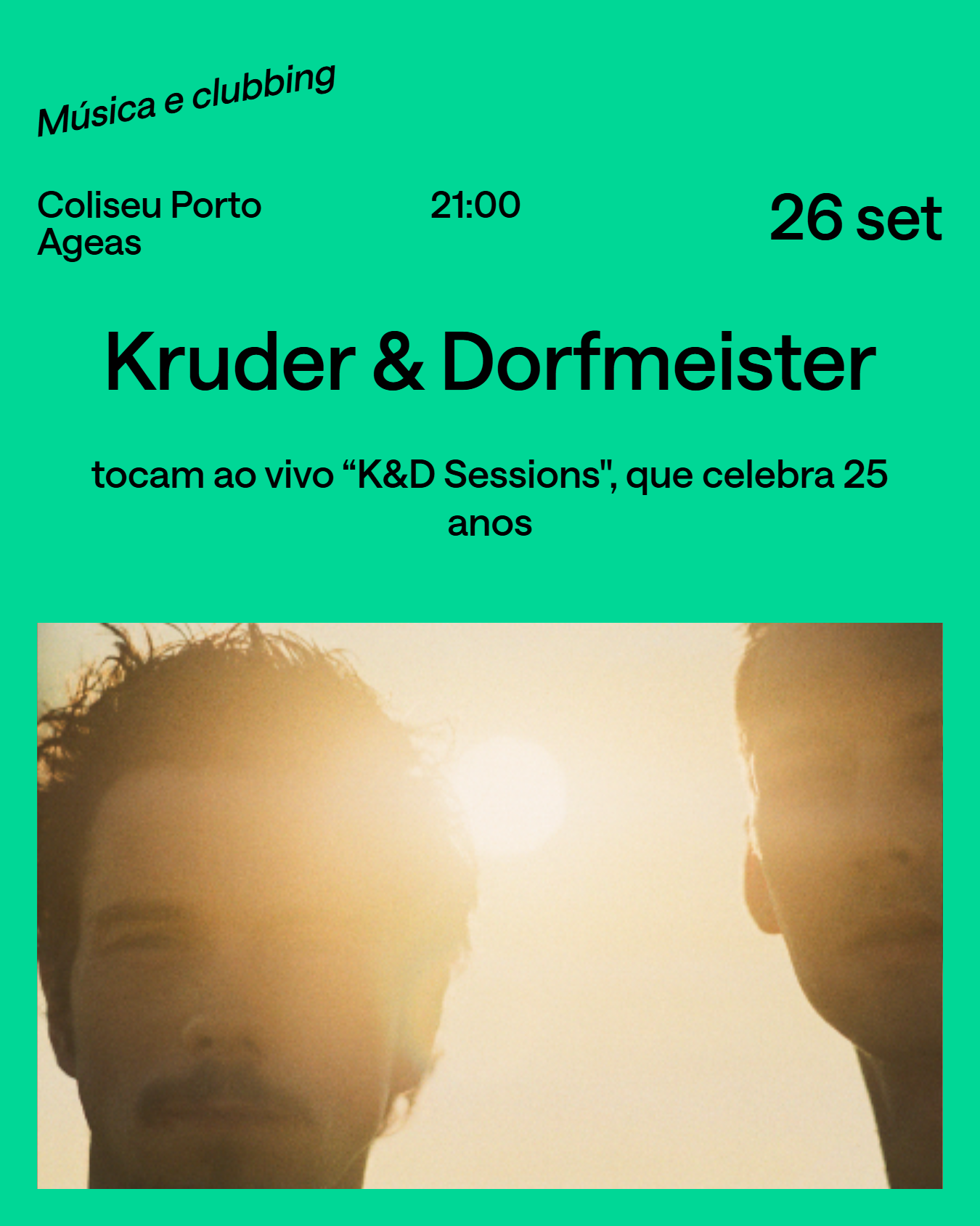
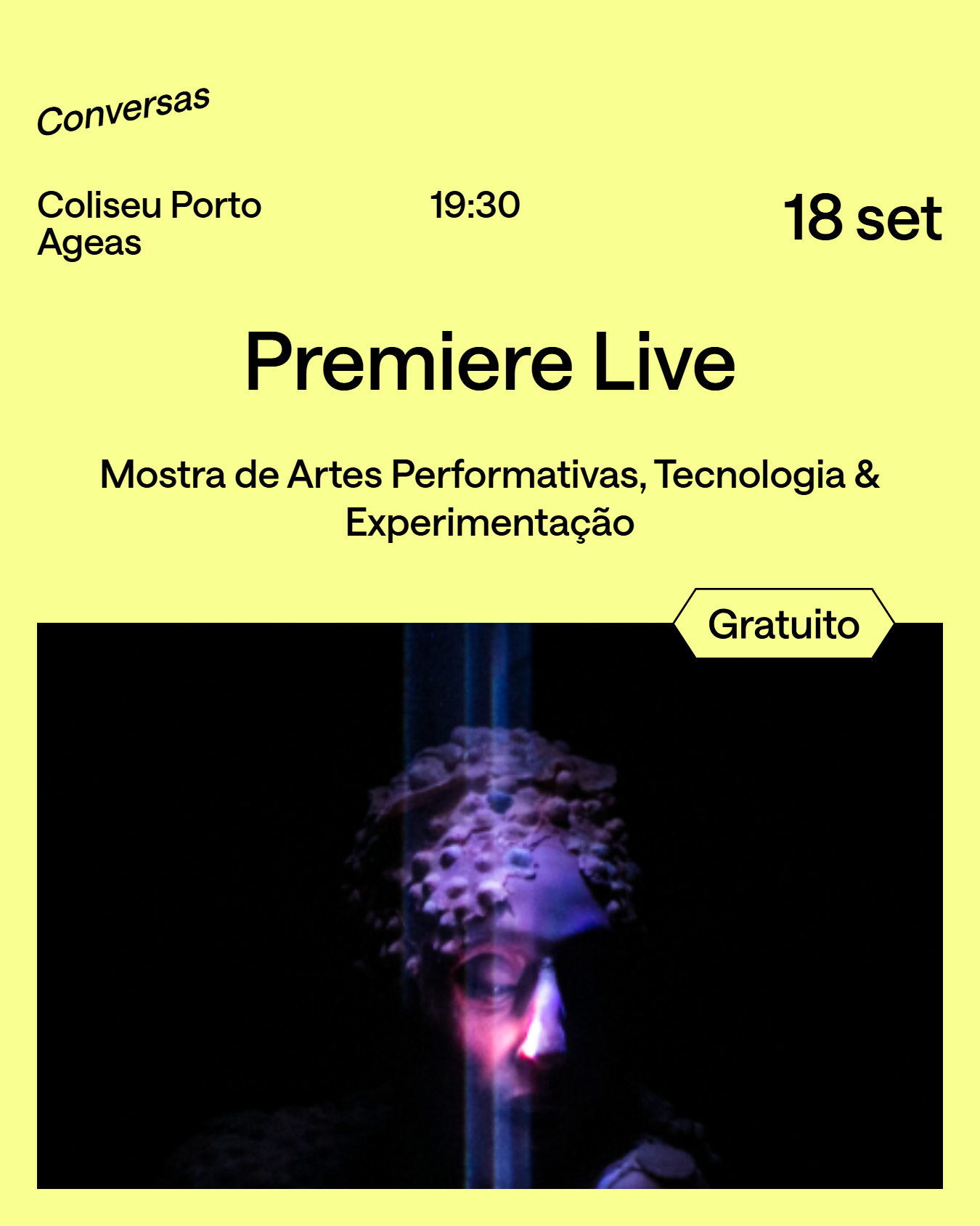
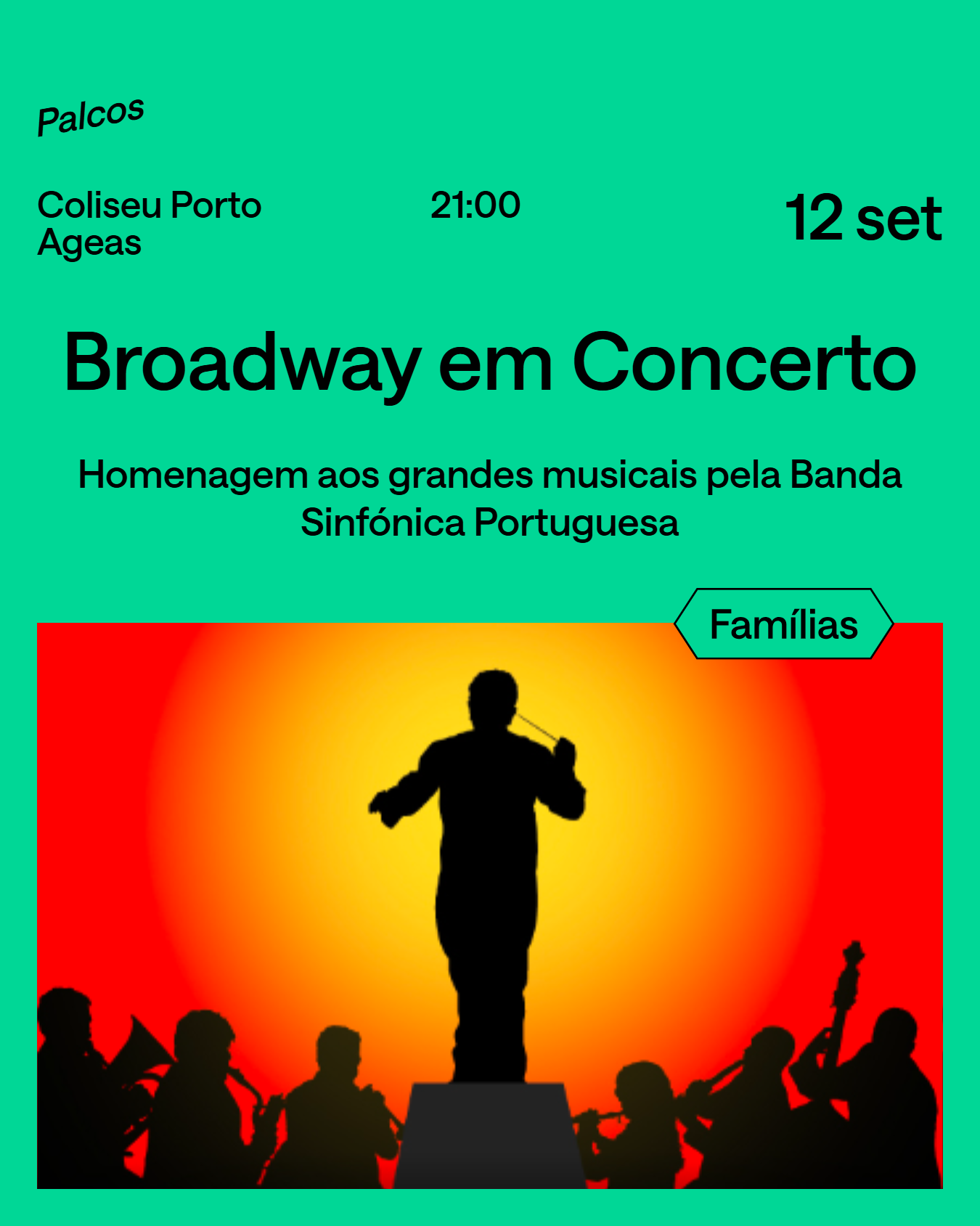
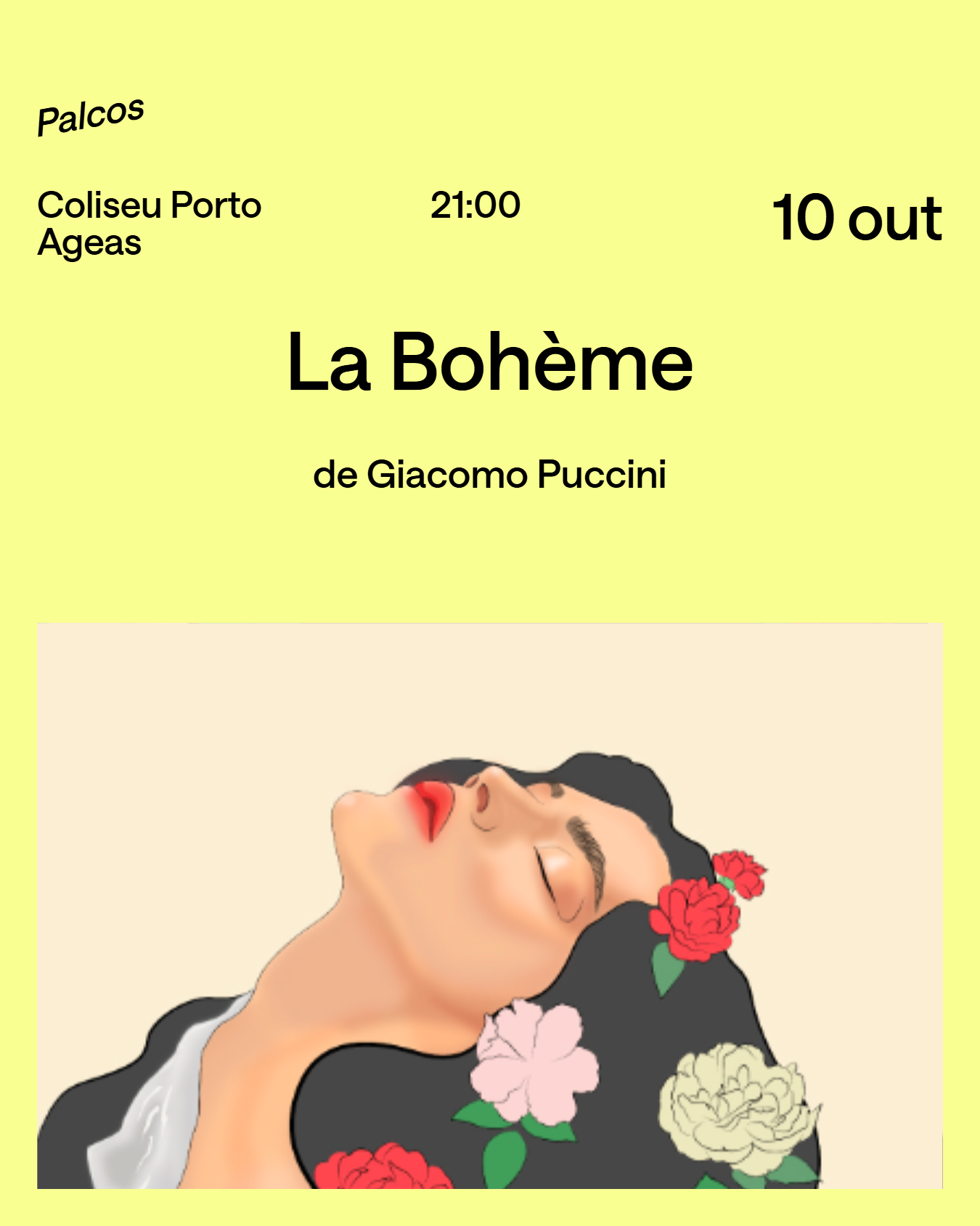
Drew Klein — Artistic Director for Teatro Municipal do Porto
Drew Klein is now in his third year as artistic director of the Performing Arts Department at Ágora – Cultura e Desporto do Porto, the municipal structure that comprises the Porto Municipal Theater, the DDD Festival Dias da Dança, and the CAMPUS Paulo Cunha e Silva. When we spoke to him, his affection and dedication to the idea of the city as a community was clear – although he admits that he may not have “all the cultural weight of having grown up as a Porto native,” he recalls that he moved here “with everything”: “This is where I live, this is where I have my family – and right now, I feel that I already have a deep connection with the city, and I care about what happens here.” Drew points out that the programming of the Porto Municipal Theater (TMP) “is built collectively.” “And we want it not only to be received with enthusiasm, but also to say something about the common experience of Porto residents.”
In February 2023, when he took office, Drew recalls that “there was the luxury of starting with an existing program for the first six months, which allowed him to experience the rhythms of the city, understand the dialogue, and learn what drives the culture.” “We are clearly in an extremely positive place—the audience has been growing, we feel that there is enthusiasm and a willingness to try different things, and we have been striving to treat the artists we support well, ensuring that they have the resources and budget to create the works we present here,” says the artistic director, taking stock.
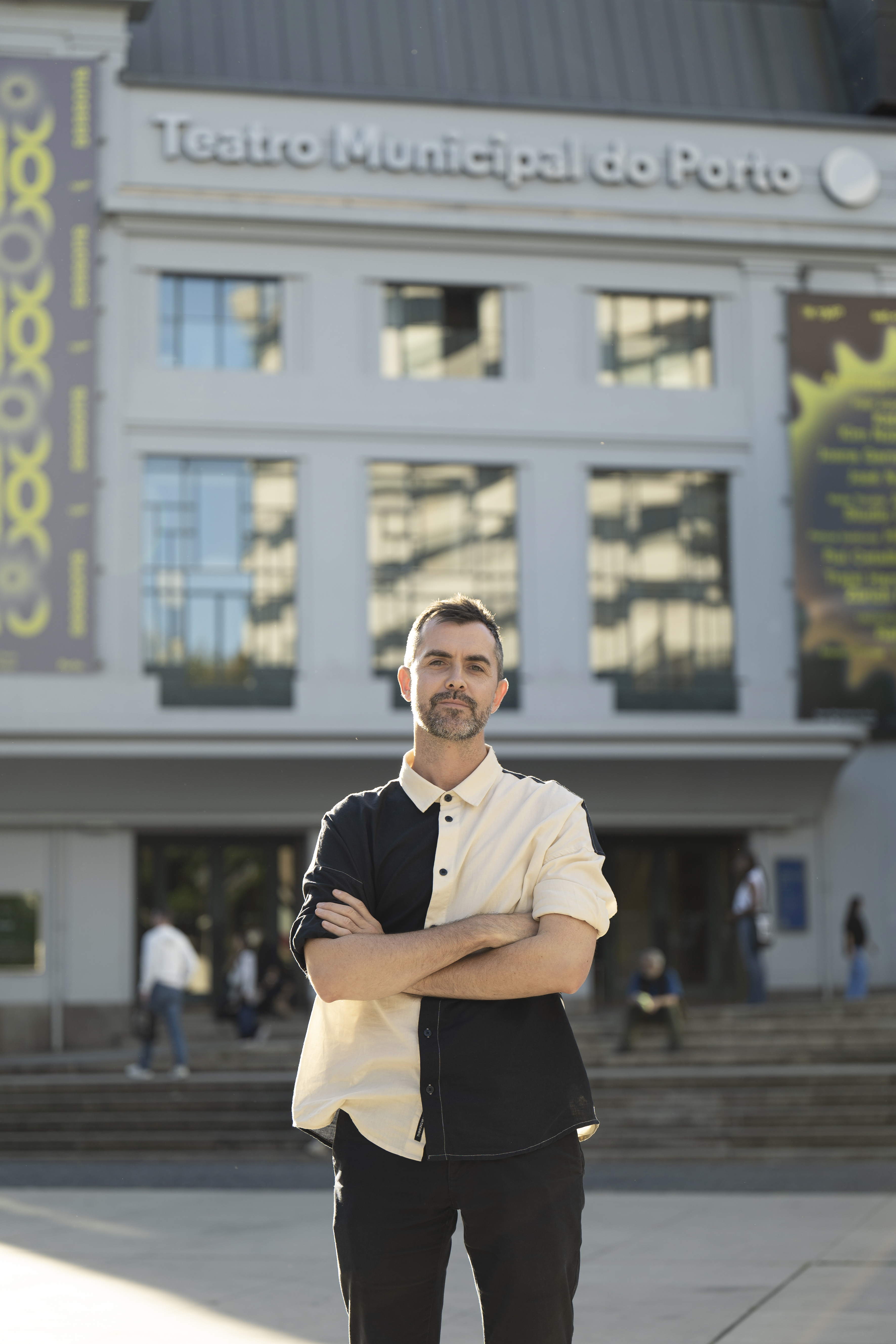
© João Octávio Peixoto
The TMP seasons are not subject to a theme, because “the program is too broad,” but Drew notes that audiences have said the programs are “very Porto.” That's what we can expect from this new season, too. "At first, I didn't quite understand what that meant, but it has to do with the fact that Porto is more bombastic, more fierce, less classic. And this season you can expect energy, extravagance, radicalism. We have to convince people to get off the couch and away from streaming services, and to do that we want them to be enticed by an evening that will be anything but passive." In addition, Drew highlights the fact that this season features many co-productions of new works by artists such as Marco da Silva Ferreira, Marlene Monteiro Freitas, Lander Patrick, and Teatro Experimental do Porto: “We started these projects with these artists without knowing what the outcome would be. In a way, we'll be sitting in the audience with the same expectations as the rest of the audience.”
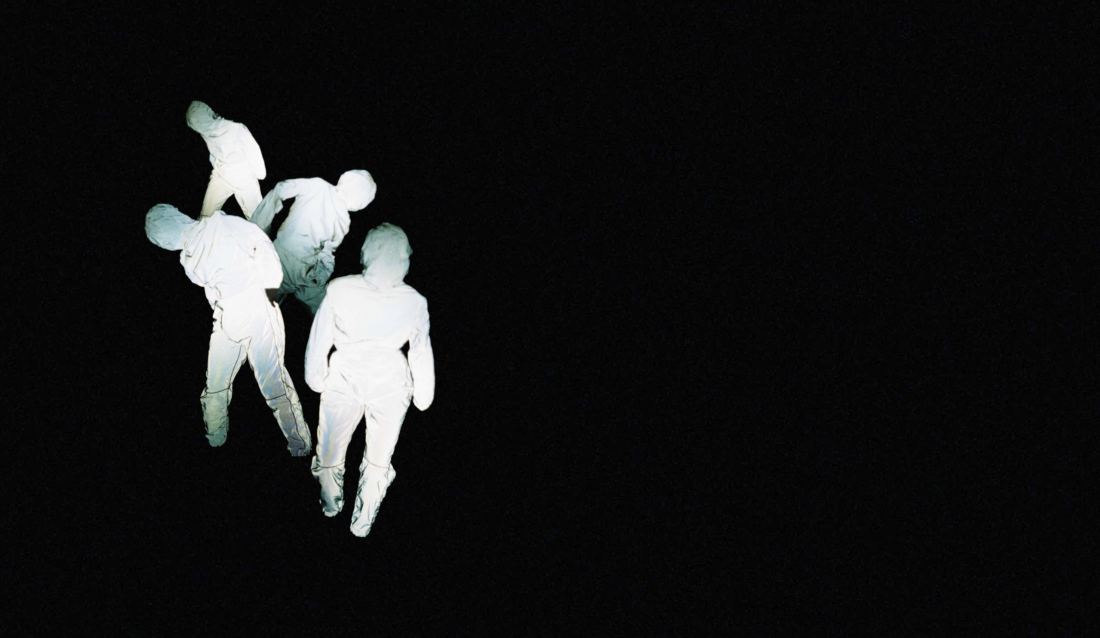
Marco da Silva Ferreira will be premiering "F*cking Future", a co-production with TMP © DR
As highlights of the program, the artistic director mentions that, this time, they want to view the concerts as something that is not separate from the rest of the program. “I have always thought that Porto is a city obsessed with music, and I want to find a place for us to join in that conversation.” He highlights cru+es (October 3), a show by Spanish performers Raül Refree (electronic music) and Niño de Elche (flamenco): "This will be something in line with what we want to do—not to be a place where bands come to play their usual concerts, but a place where there is a performative experience of music. And this particular show is in line with our desire to dialogue with history, while pushing us into the future."
In dance, and in line with a thematic exploration of the idea of conflict (whether in war or within a family), the highlight is the season opener, with NÔT, by Marlene Montero Freitas (September 19 and 20). “It is a show that recently premiered in Avignon, and is based on her interpretation of the tale from One Thousand and One Nights—the idea of postponing the violence of men through dialogue. She plays a lot with these ideas, and there is incredible set design work.”
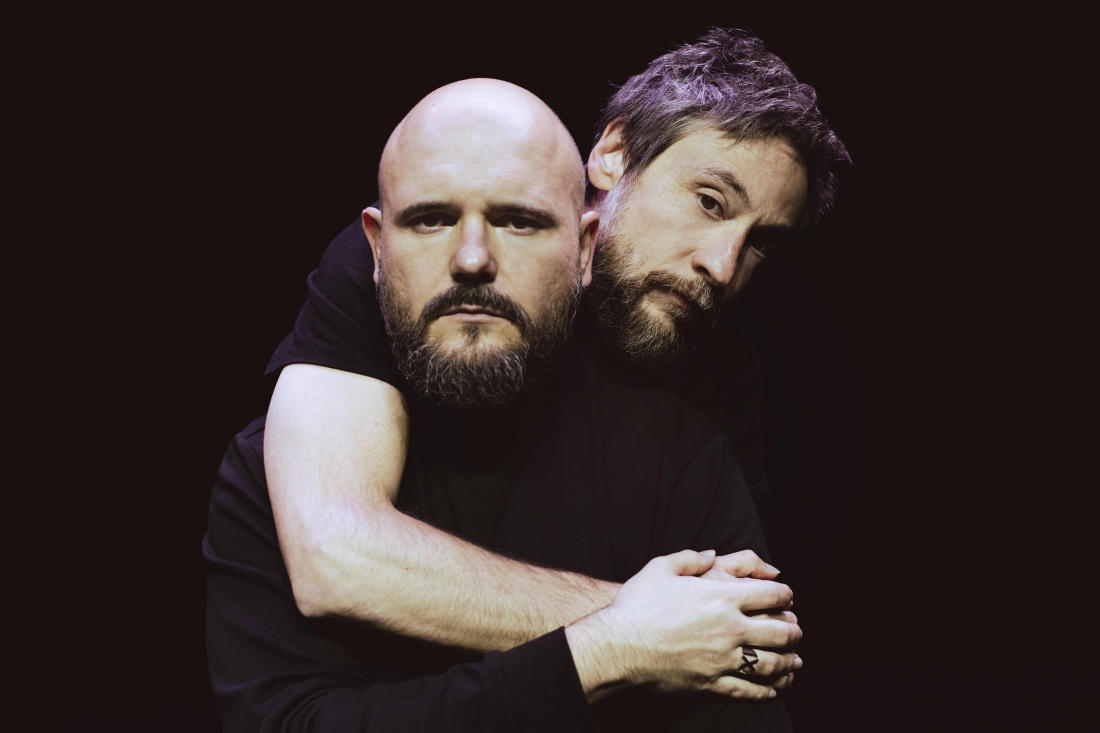
In "cru+es", Niño de Elche and Raül Refree present flamenco fusion © DR
As for community work, Drew highlights Oz ou a Estrada (November 22), by Rafa Jacinto and Roberto Terra. This program, with two sessions for schools and one public session, is “a look at the legacy of The Wizard of Oz in queer culture, and uses this framework as a way to frame the search for identity.” “We think this play will resonate with the high school classes we will bring, allowing them to find some comfort in a journey of self-discovery for those going through crucial years in the construction of their own identity.”
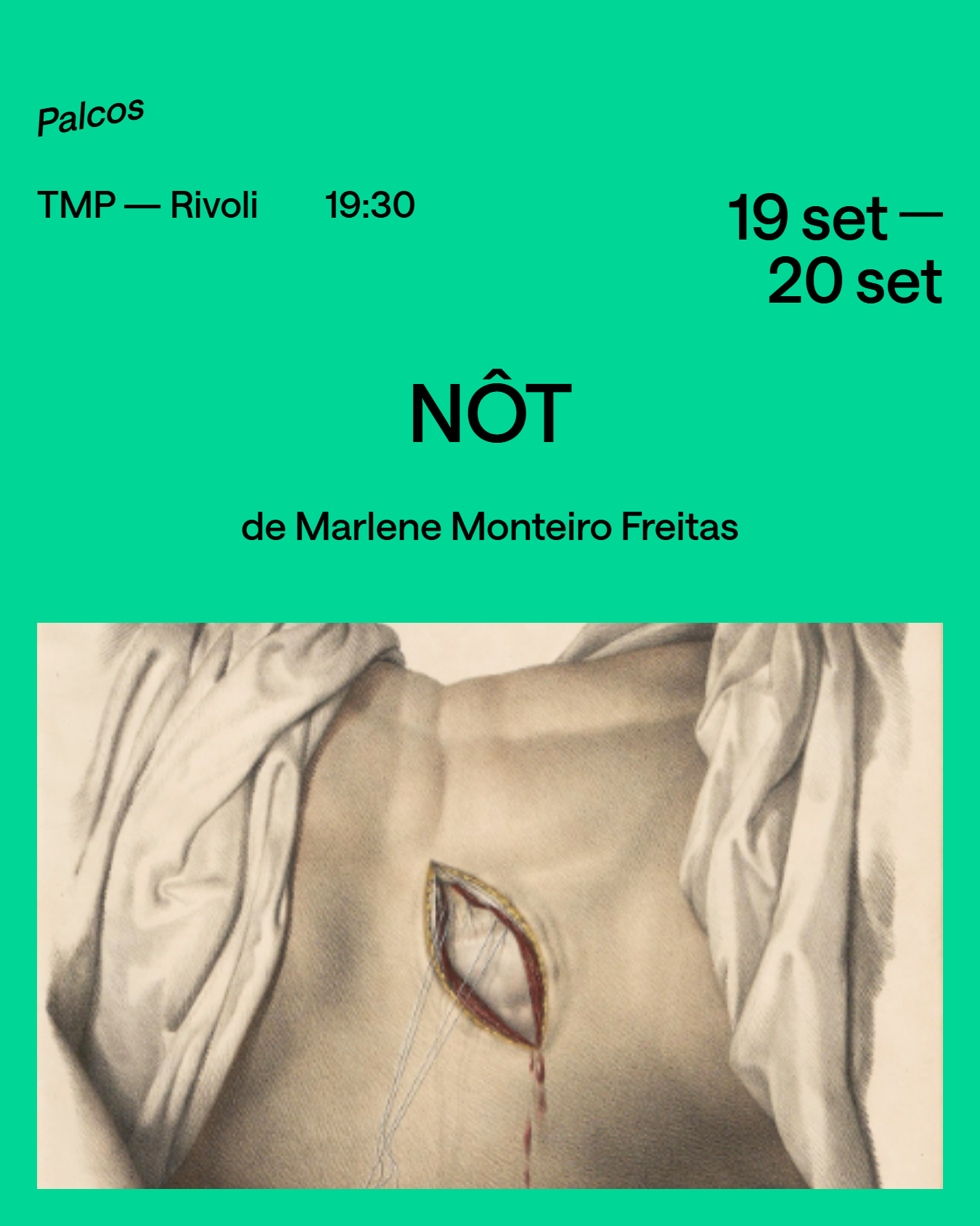
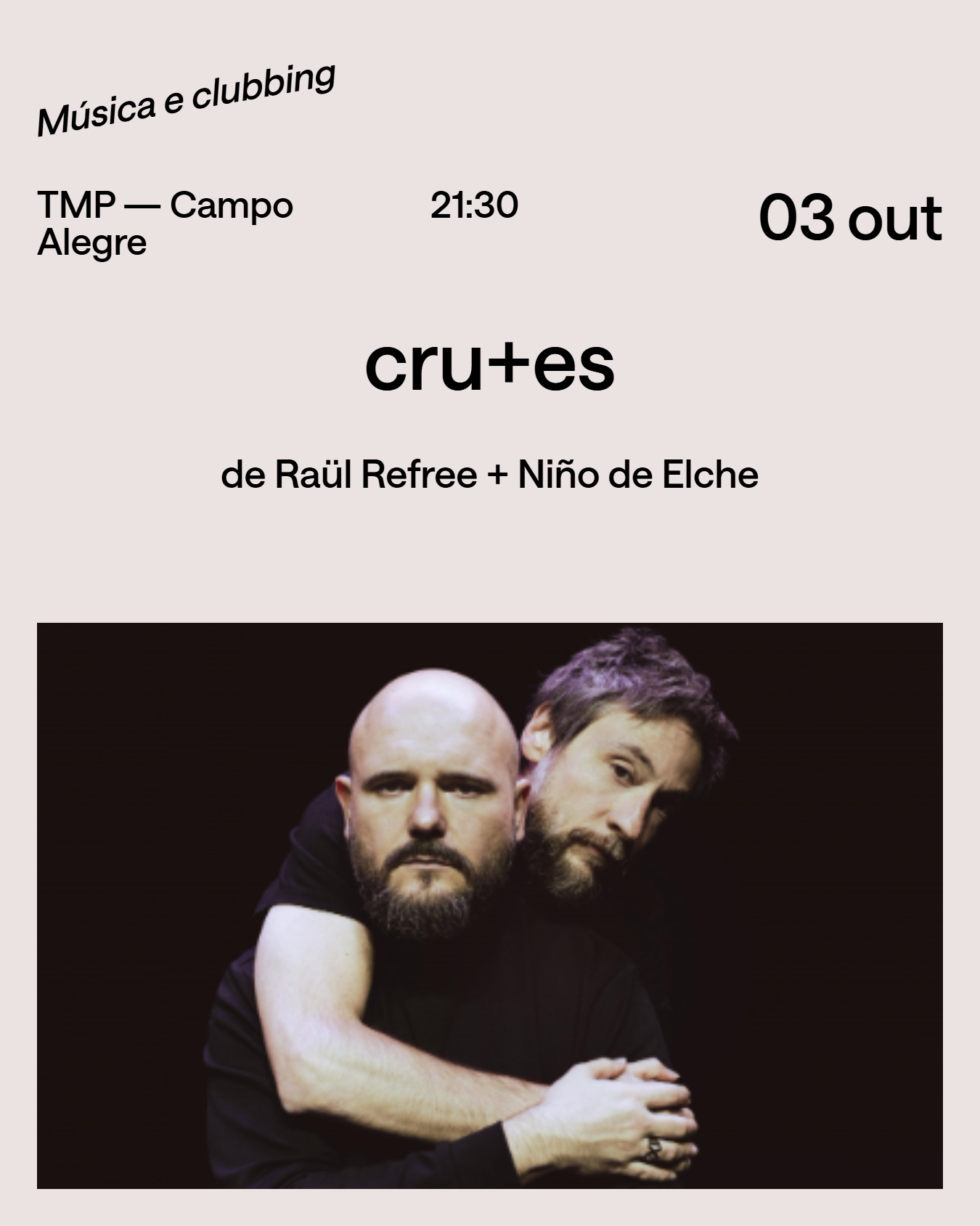
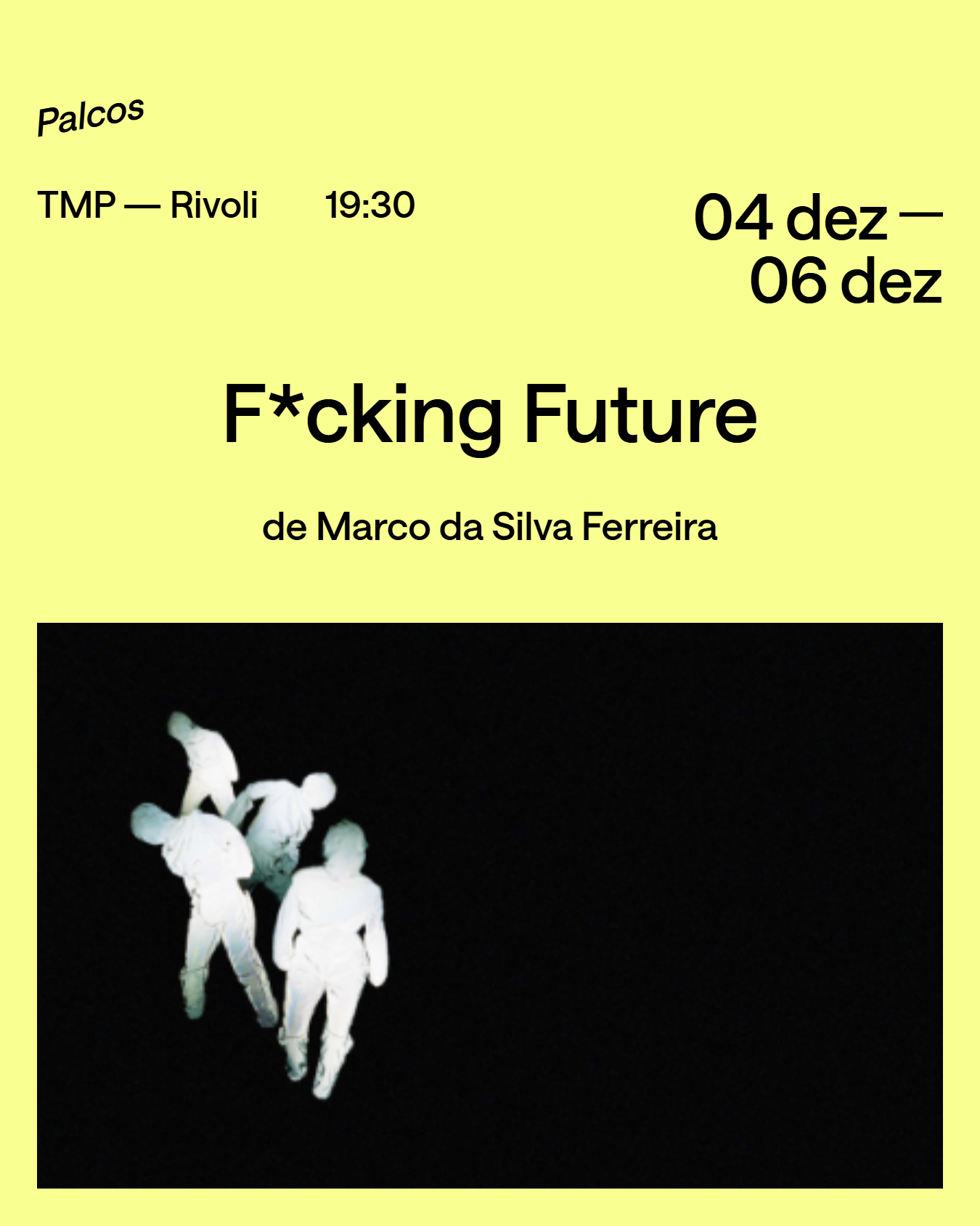
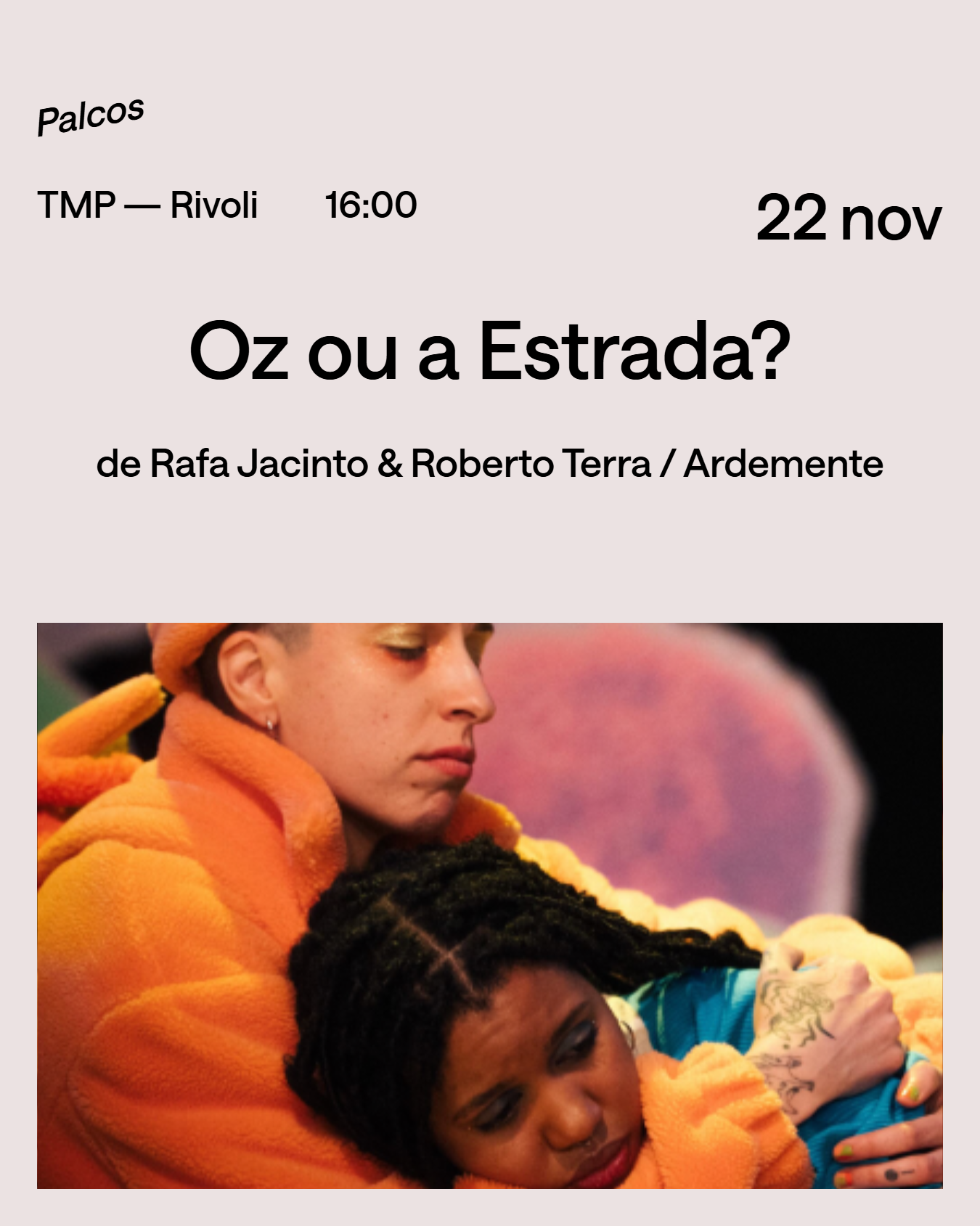
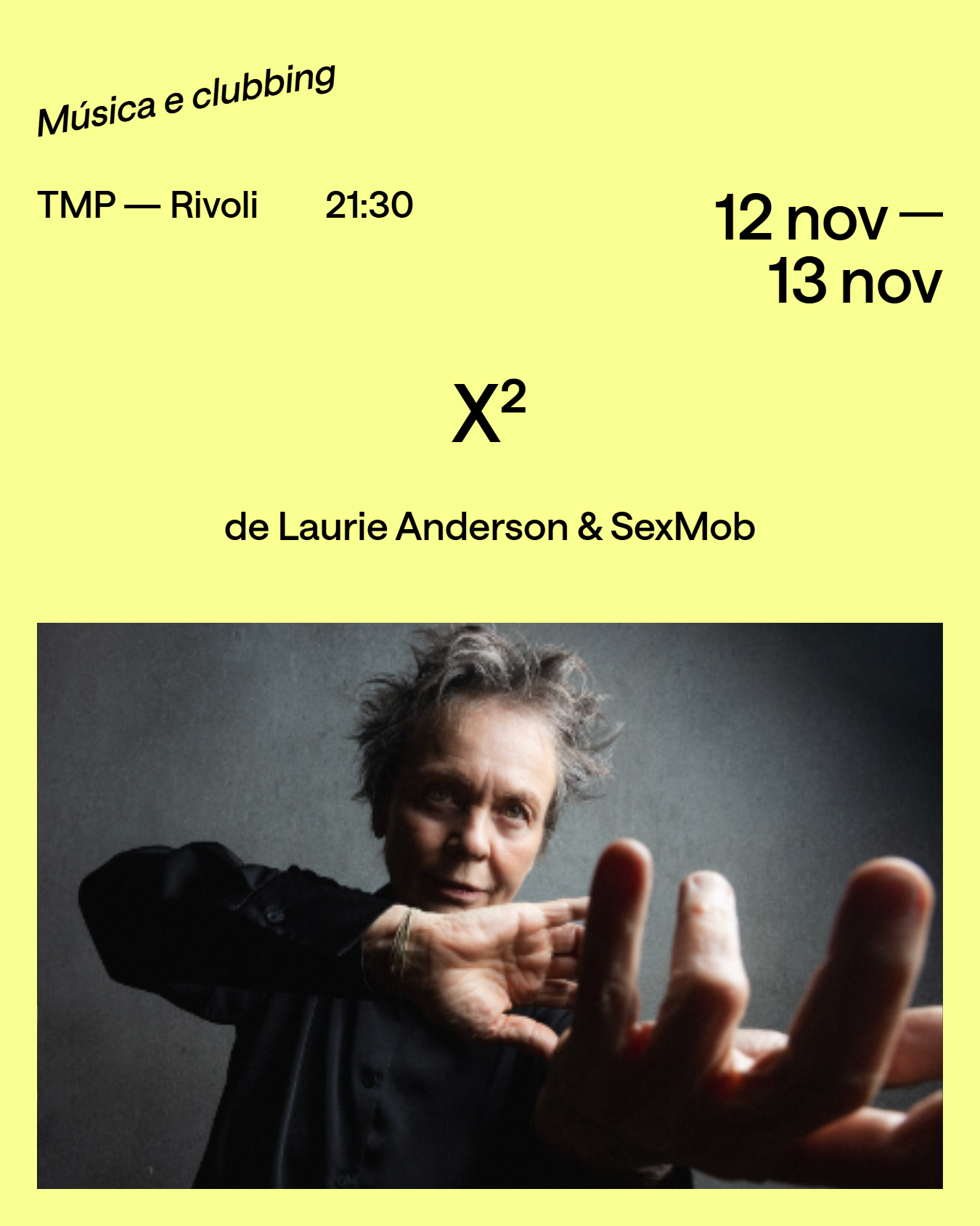
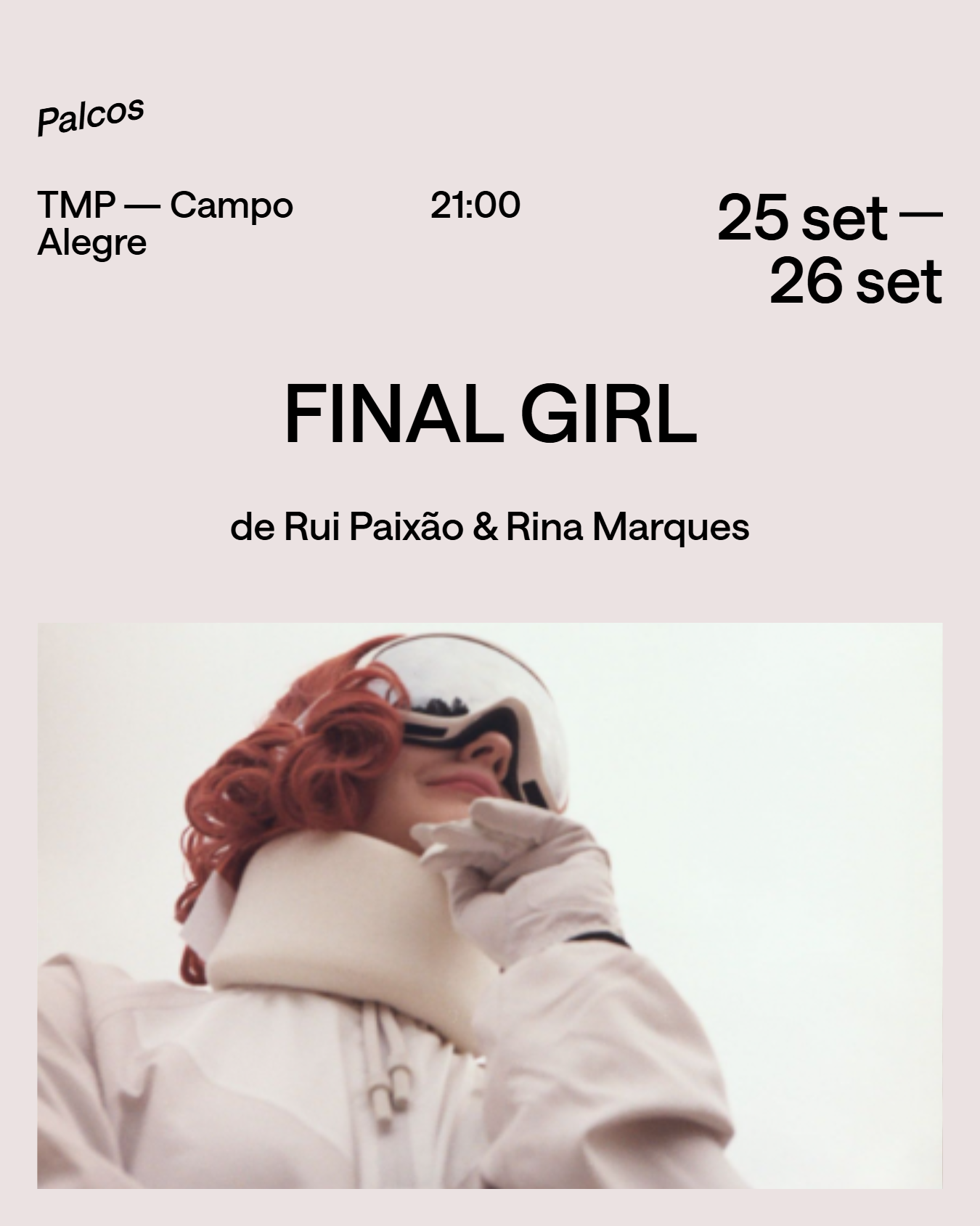
Pedro Sobrado — Chairman of the Board for Teatro Nacional de São João
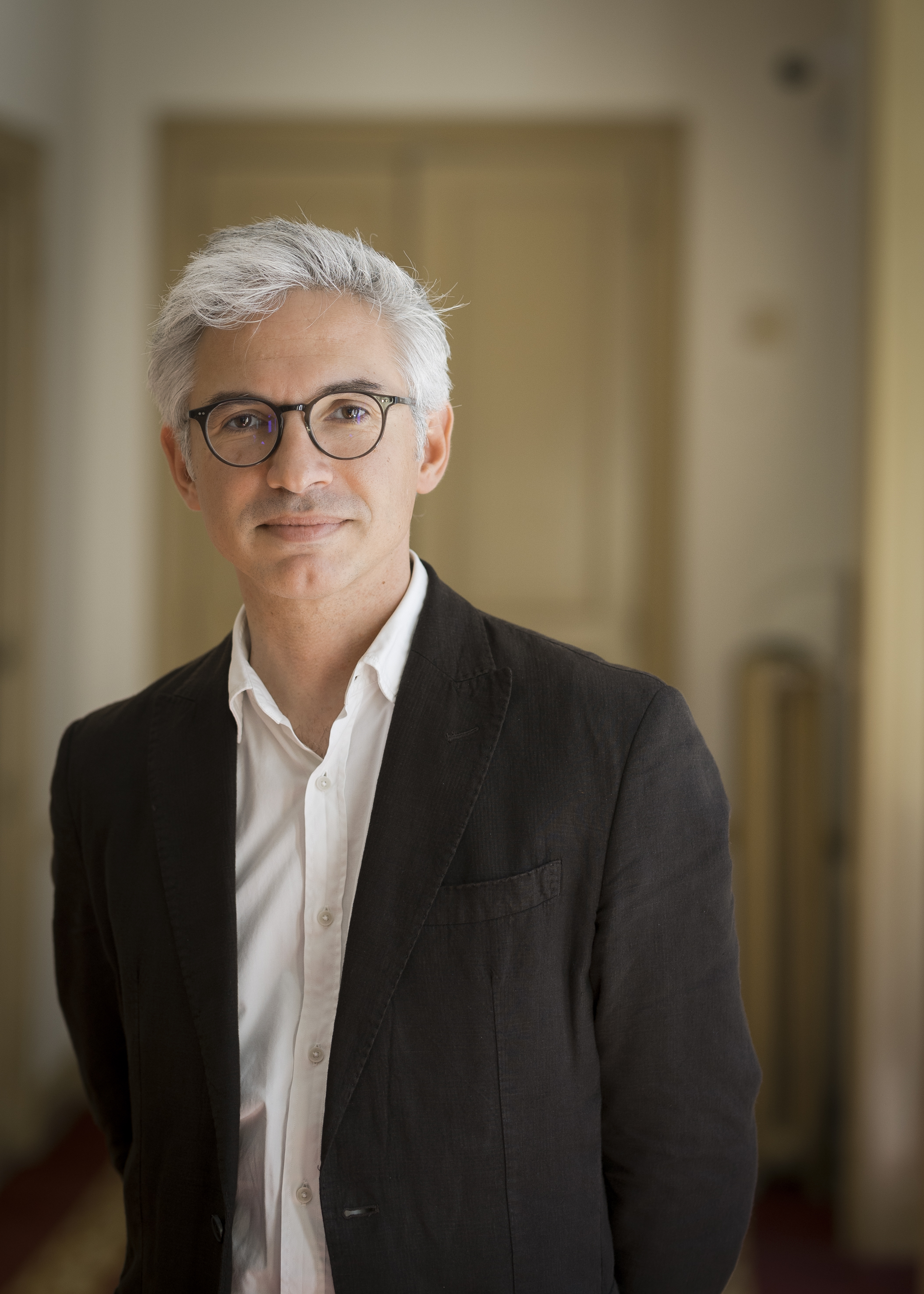
Pedro Sobrado © TNSJ
When asked about the theme of the new season at the Teatro Nacional de São João (TNSJ), Pedro Sobrado quotes Polish theater director Jerzy Grotowski: “I did not come to discover something new, but something forgotten.” This motto, already adopted as a “mantra” by the TNSJ team, refers to the nature of this venue as a repertory theater, a label that does not scare Sobrado: “Creating a repertory today is an act of courage and rebellion, of resistance against presentism, an oppressive and suffocating regime. Traditions and great dramaturgical legacies can and should be revisited, studied, disrupted, and corrupted." The issue of revisiting repertoire works will even be the subject of a conference at TNSJ in 2026.
Before that, the new season marks RP 80, a series of four programs, the anniversary of director Ricardo Pais, a figure closely associated with the institution and the “founder of its ideology.” Pedro Sobrado describes the director as “a provocative stage creator, systematically fleeing from his own certainties, restless, genuinely eclectic, incorrigibly curious.” Two of his plays will be restaged – Turismo Infinito and al mada nada (both from October 16 to 19) – and there will be space for a workshop led by Ricardo Pais himself (from September 15 to 27) and the launch of the book Despesas de Representação, a collection of texts and interviews by Ricardo Pais, produced between 1975 and 2025.
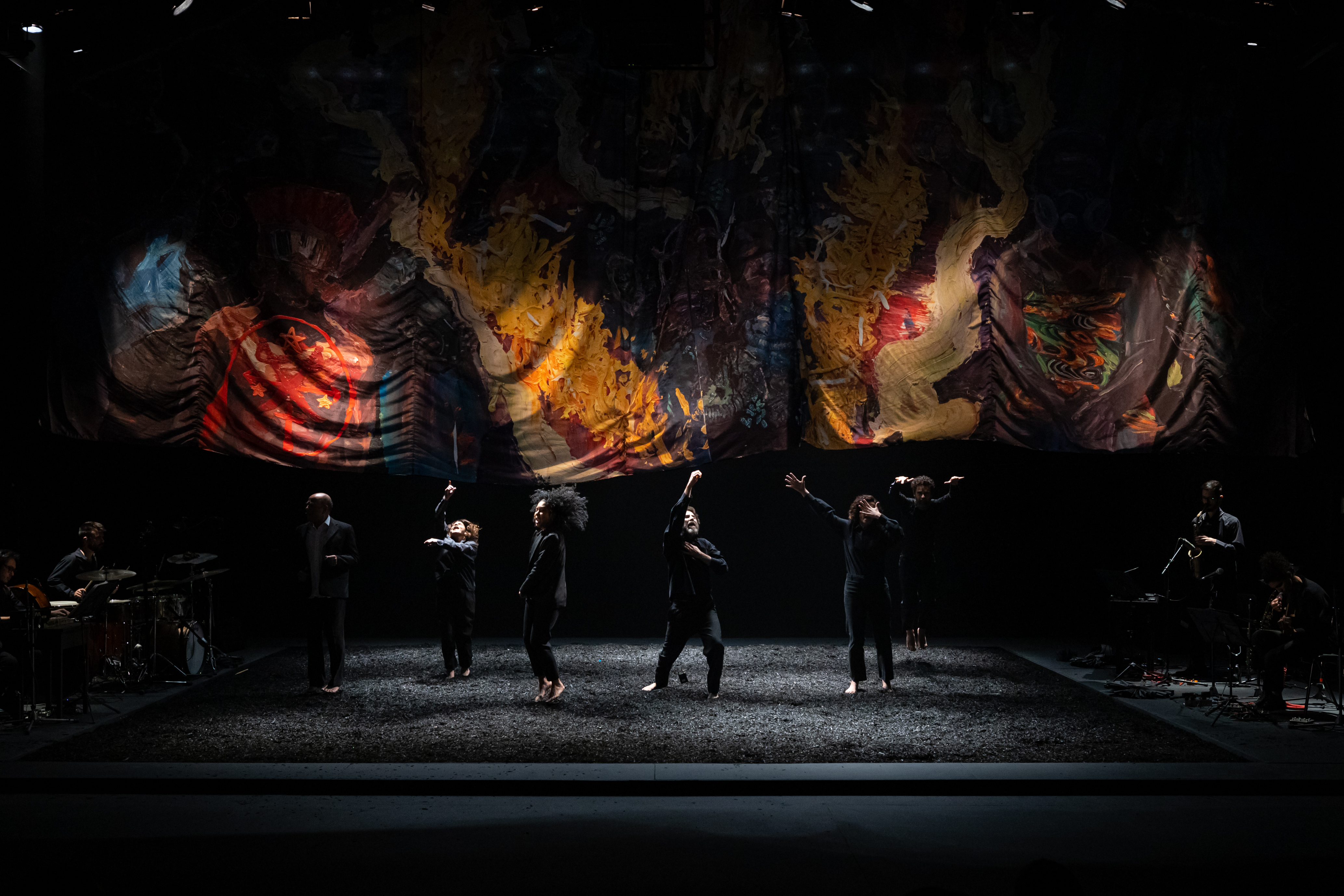
Língua Brasileira, by Felipe Hirsch, opens TNSJ's season © DR
In the always difficult task of choosing highlights for the program, Sobrado points to Língua Brasileira and O Beijo no Asfalto: “two shows that, in complementary ways, defend and celebrate the Portuguese language.” Língua Brasileira, by Felipe Hirsch, features music and lyrics by Tom Zé, and will be on stage from October 2 to 5. O Beijo no Asfalto, a TNSJ production directed by Miguel Loureiro, closes the season. In terms of in-house productions, Sobrado also highlights two other plays: Branca de Neve e Outros Dramalhetes (Snow White and Other Dramas), directed by Nuno Carinhas, will be on stage from October 20 to December 14, for “offering an incursion into the work of Robert Walser, little known among us”; and the show by Victor Hugo Pontes (new artistic director of TNSJ) based on the work of Manuel António Pina, “a key figure in Portuguese drama for children and young people.”
Finally, for younger audiences, the highlight is Buchettino, by Chiara Guidi, for being “a benchmark in European theater for children.” Alongside the show, which will be staged at the Carlos Alberto Theater from May 13 to 17, the program includes a seminar and the Portuguese edition of the book Teatro Infantil (Children's Theater). According to Pedro Sobrado, “it is a clear commitment to valuing childhood as a privileged territory for discovery and artistic creation.”
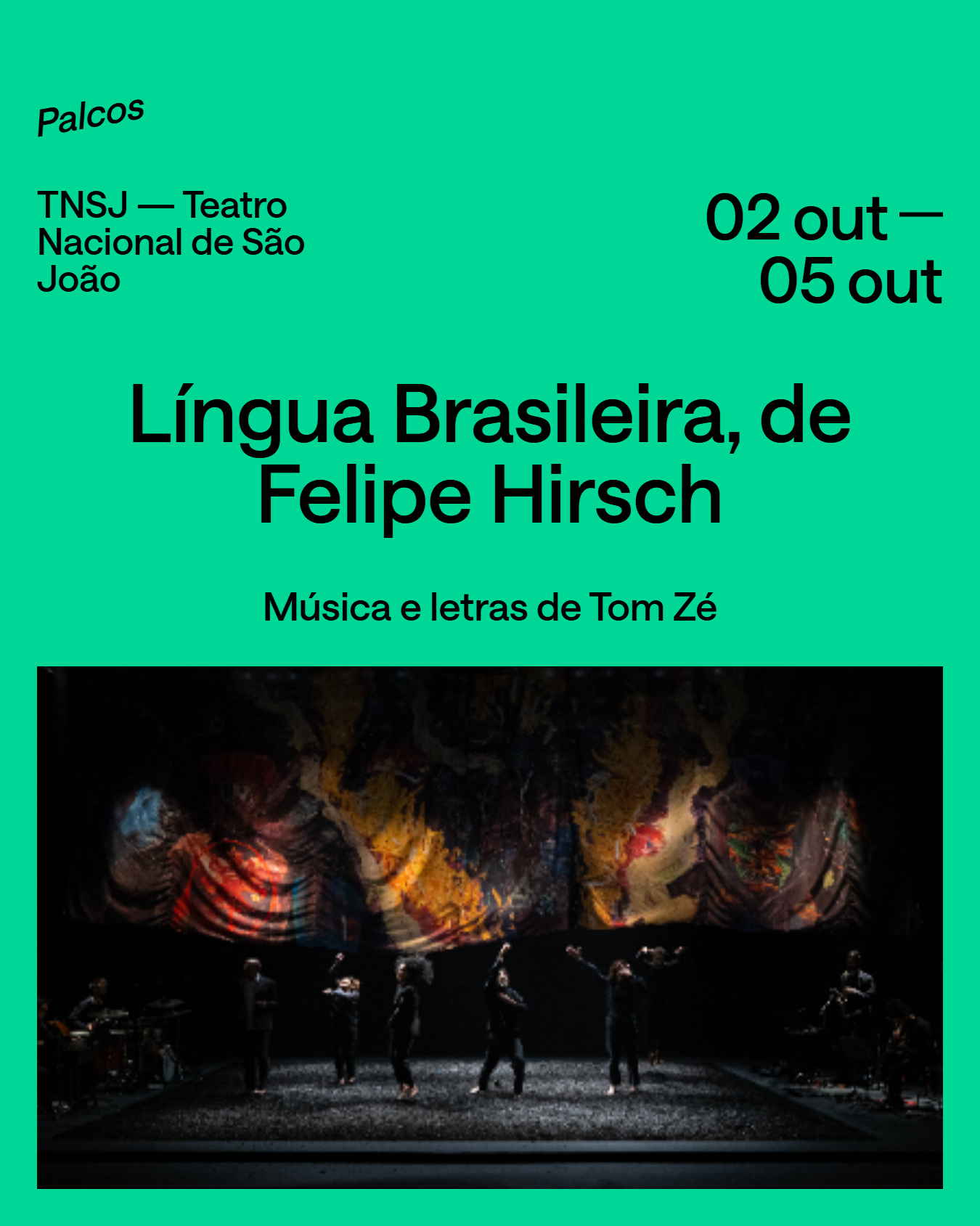
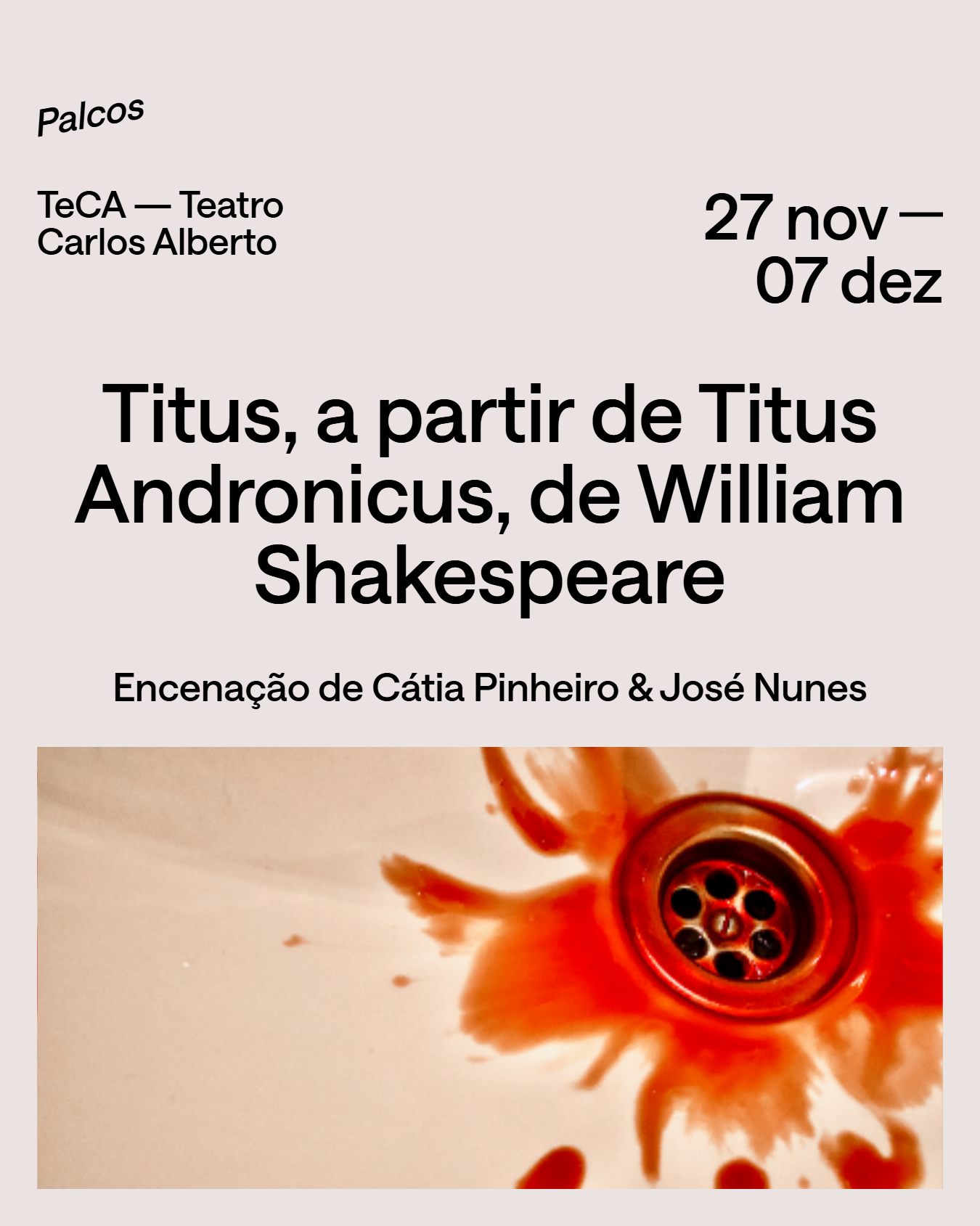
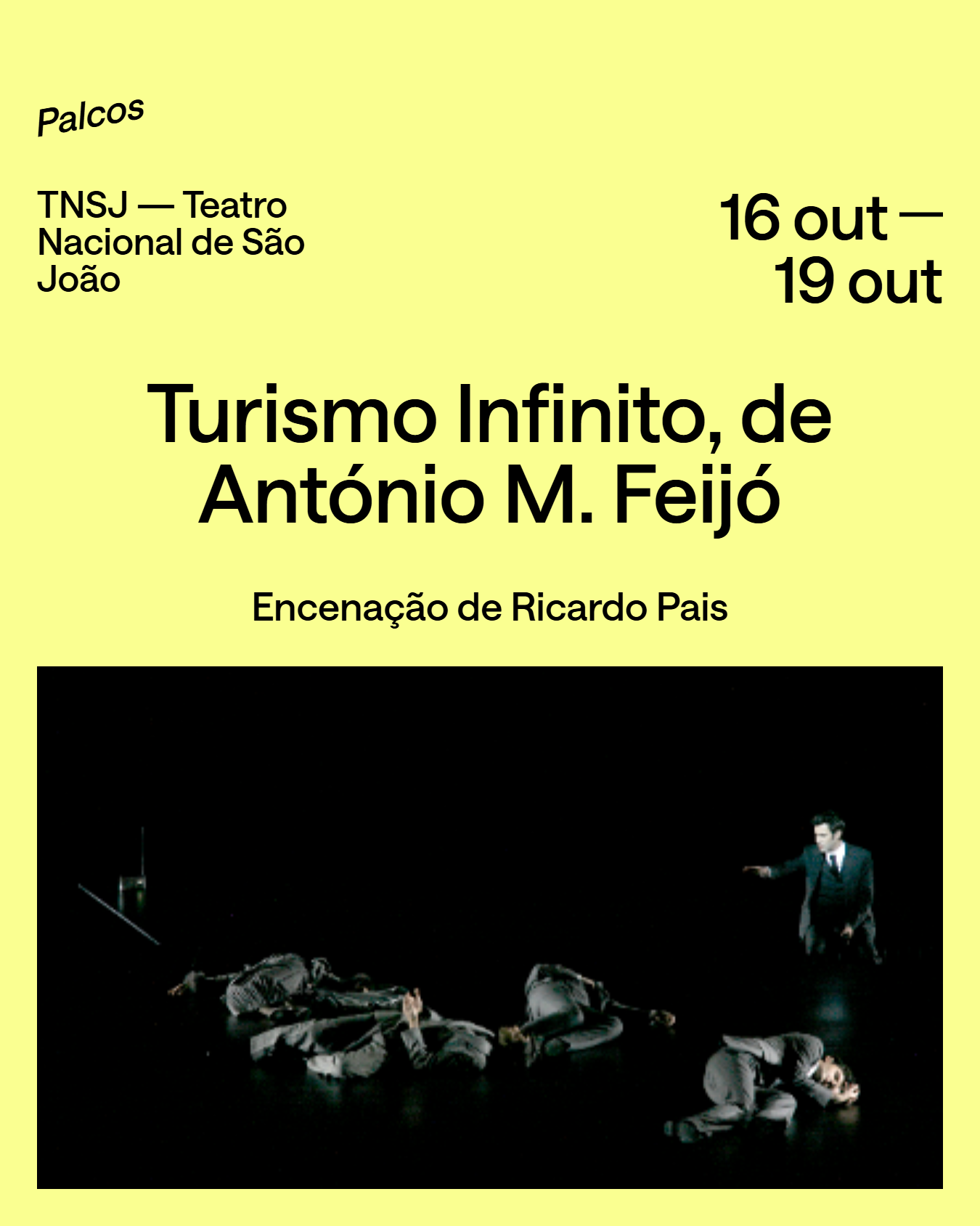
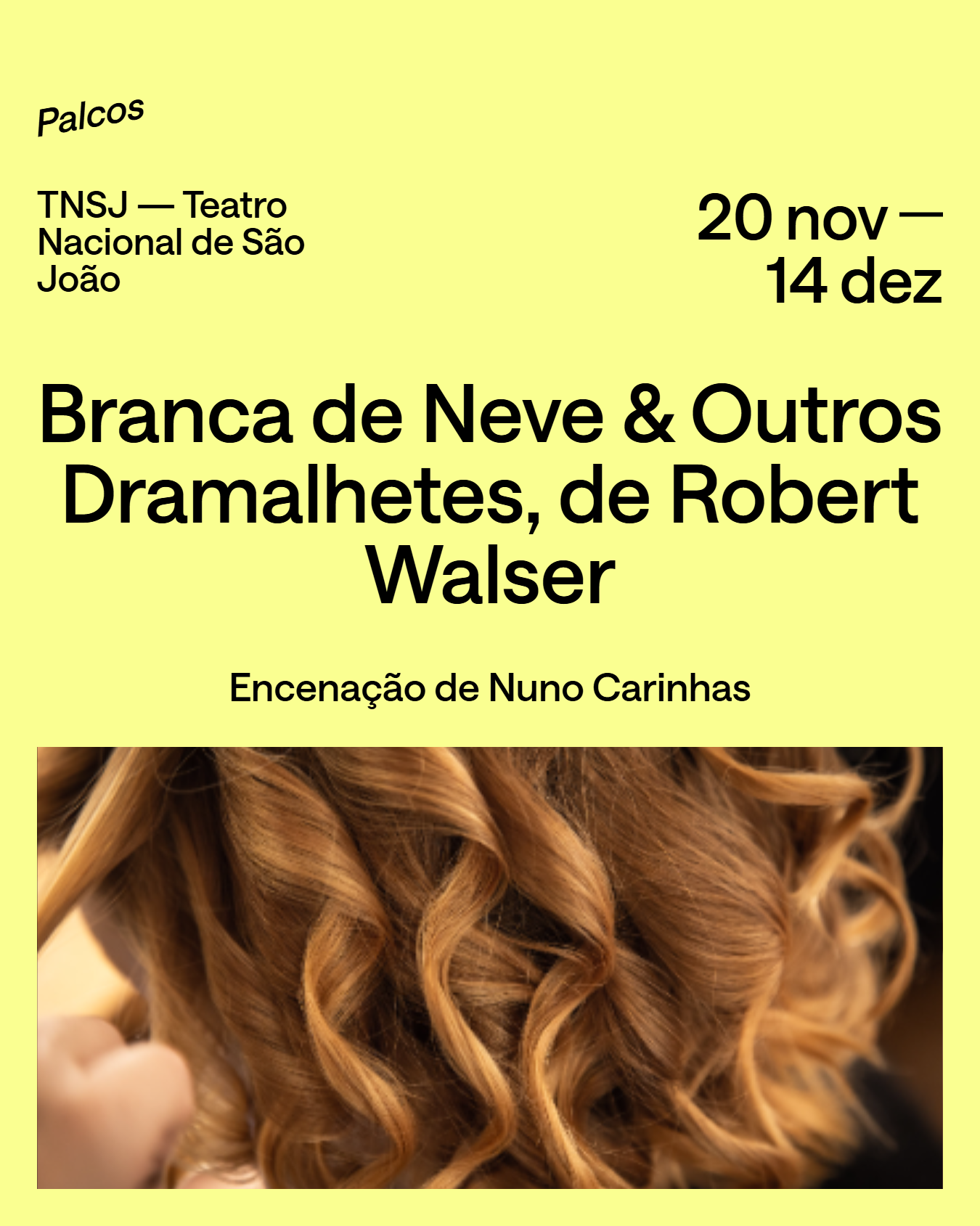
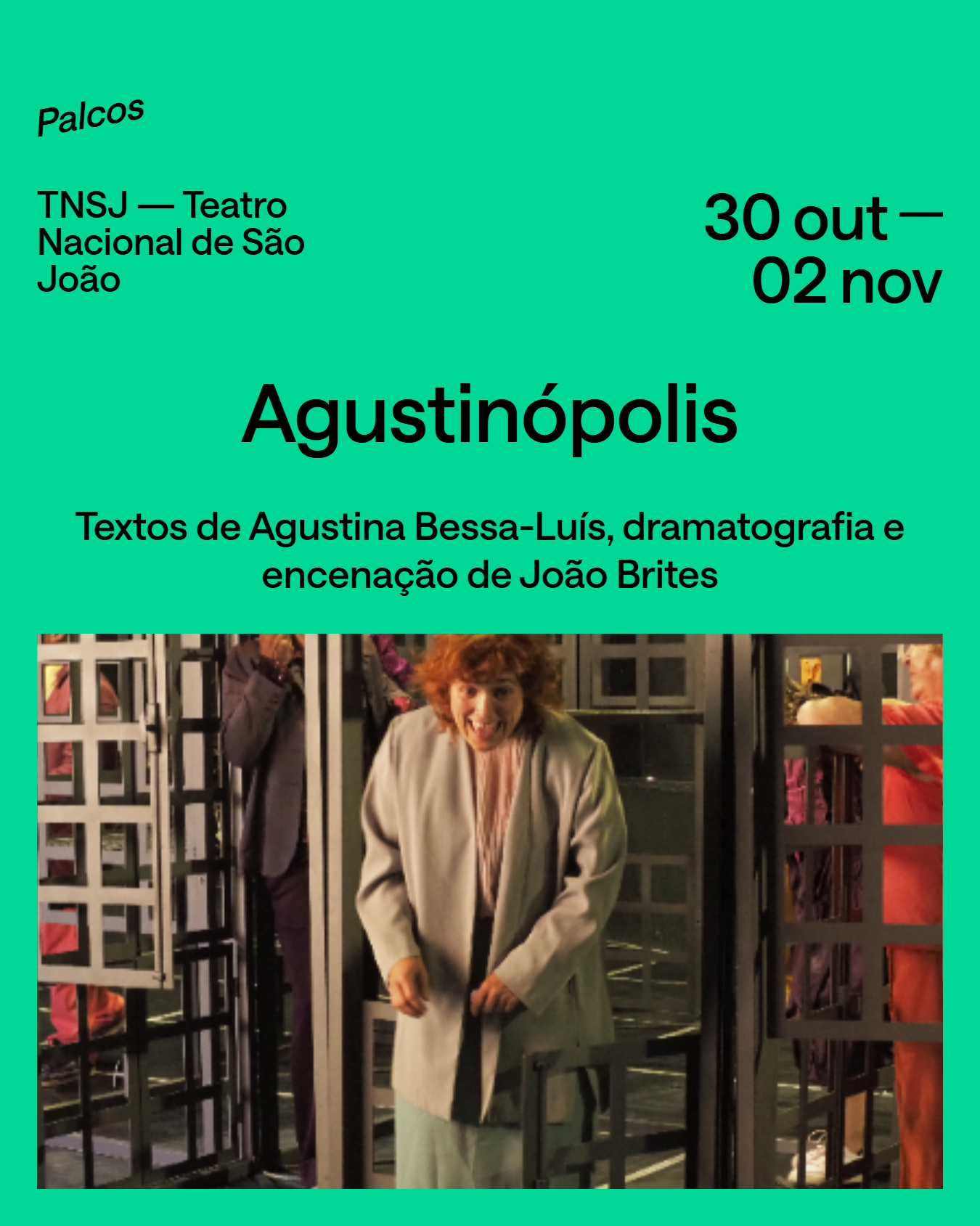
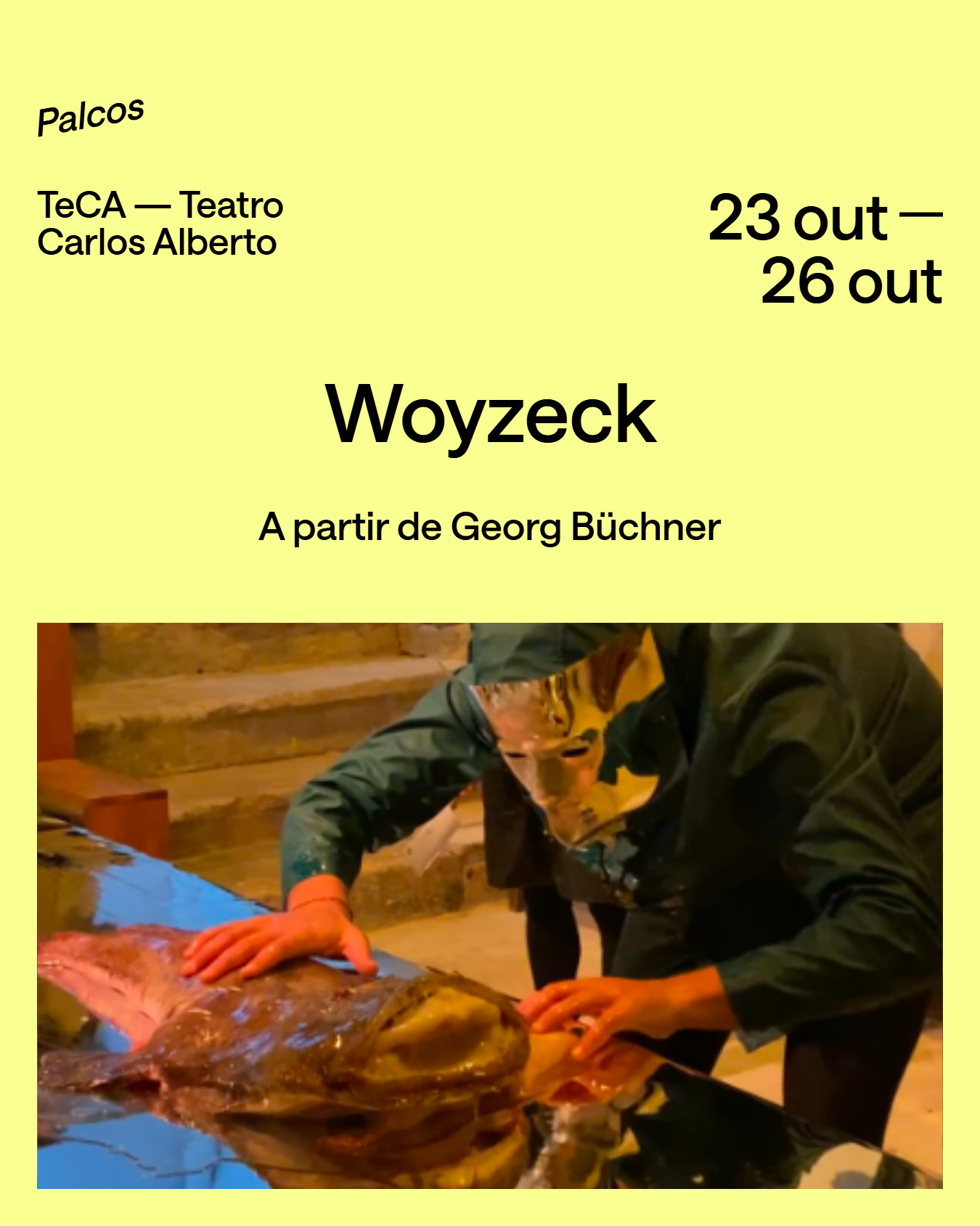
Guilherme Blanc — Artistic Director for Batalha Centro de Cinema
The new season of Batalha Centro de Cinema kicks off in September with a new thematic cycle. The central figure? The telephone—that object that has so often become a character, a narrative driver, a kind of important element in the history of cinema. “The thematic cycles are programs that discuss themes based on cinema, with a comprehensive approach in terms of genre and language,” explains Guilherme Blanc, artistic director of Batalha. “This time, we will look at the telephone as a character, which can appear as a device that drives or is the thread of a story, or which can also appear as a technological device. How does the telephone participate in the development of cinema itself?”
The cycle opens with Steven Spielberg's E.T. – The Extra-Terrestrial – “one of the most iconic films in the history of cinema,” as Guilherme recalls. From there, the journey extends across diverse geographies and styles, from blockbuster films to experimental cinema, drawing a map where the telephone is the common link.
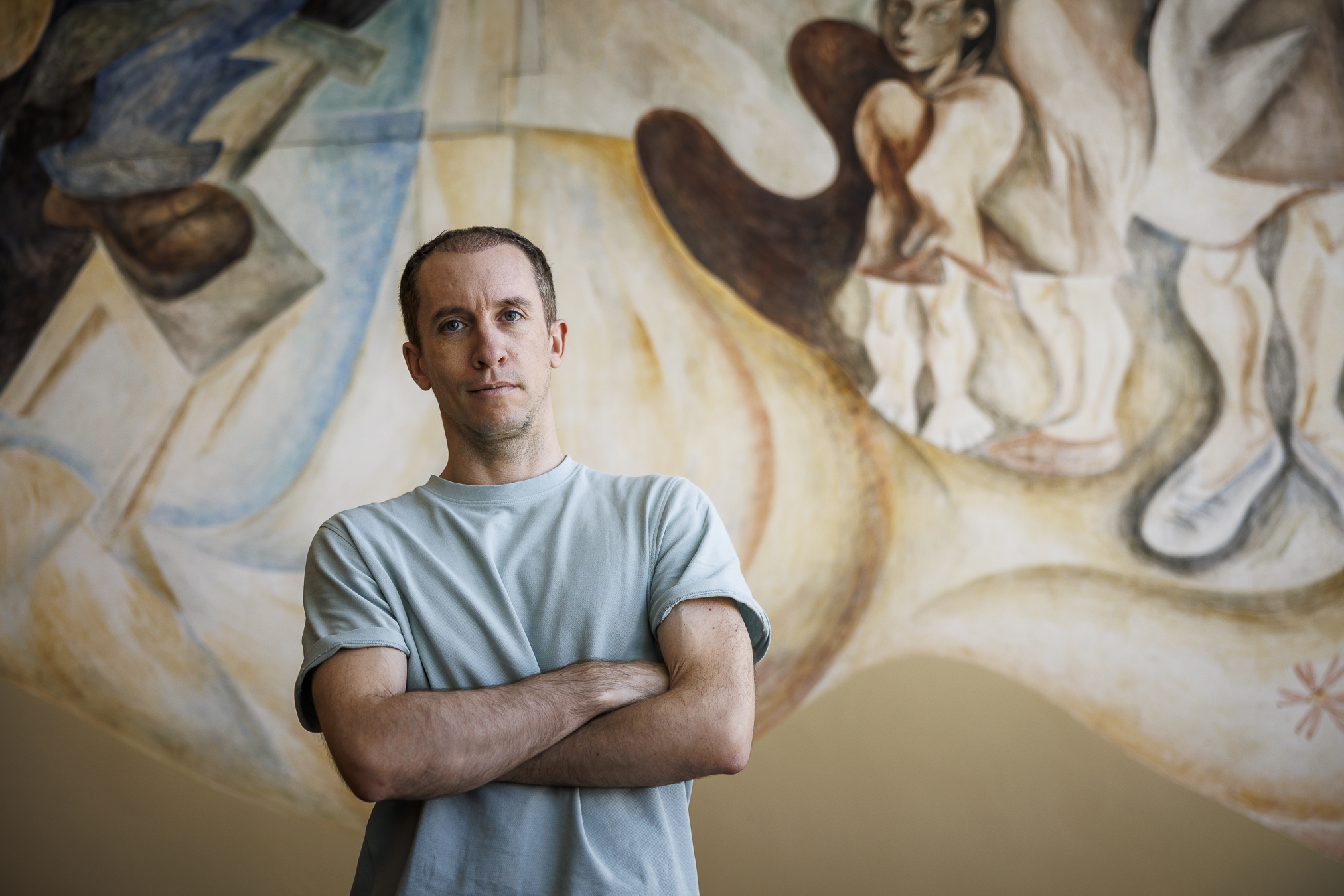
© Guilherme Costa Oliveira
The season also includes two major retrospectives: one dedicated to David Bowie, exploring his presence in cinema as an actor, but also how cinematic language influenced his work. “And, on the other hand, how his artistic expression also influenced other filmmakers,” adds Guilherme. The other retrospective delves into the filmography of Dominga Sotomayor, a Chilean director from an intermediate generation. Three feature films and several short films will be shown in their entirety, in a program that will include the presence of the filmmaker in Porto to present the films and lead a masterclass.
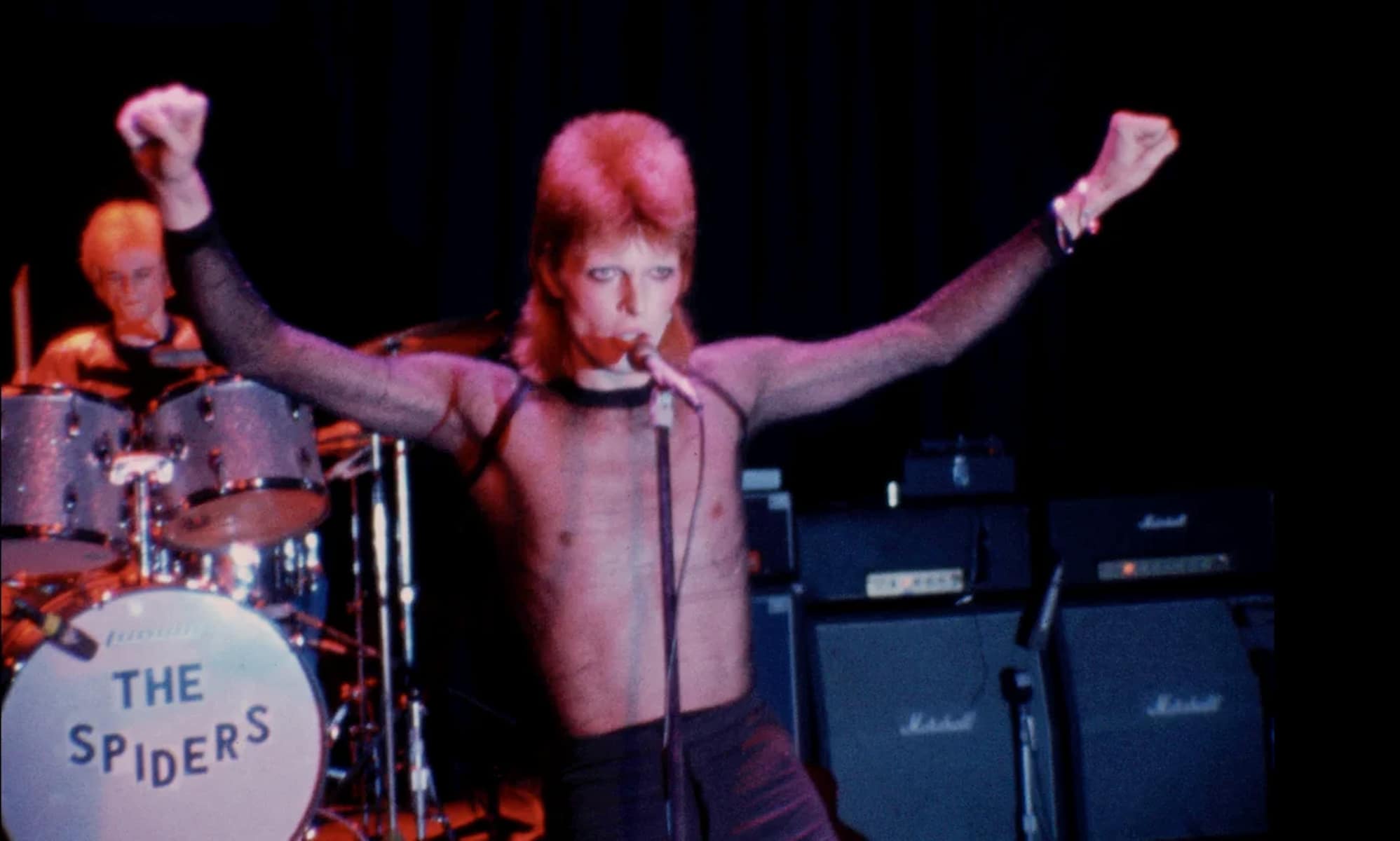
The retrospective "David Bowie: an odyssey" will feature movies that served as inspiration for the legendary musician © DR
At the intersection of exhibition and education, Batalha resumes the Porto Film Course, a program that links the city's history to cinema. The Gulliver course, designed for families, returns with a new module on the relationship between cinema and video games. “It's a course that covers various issues related to cinema, from history to filmmaking,” emphasizes the artistic director.
The Family Sessions remain a meeting point between generations; and it is also here that E.T. returns as a rite of passage, an invitation to share, and a collective experience. For the little ones, there will also be space to rediscover the physical and burlesque cinema of Buster Keaton.
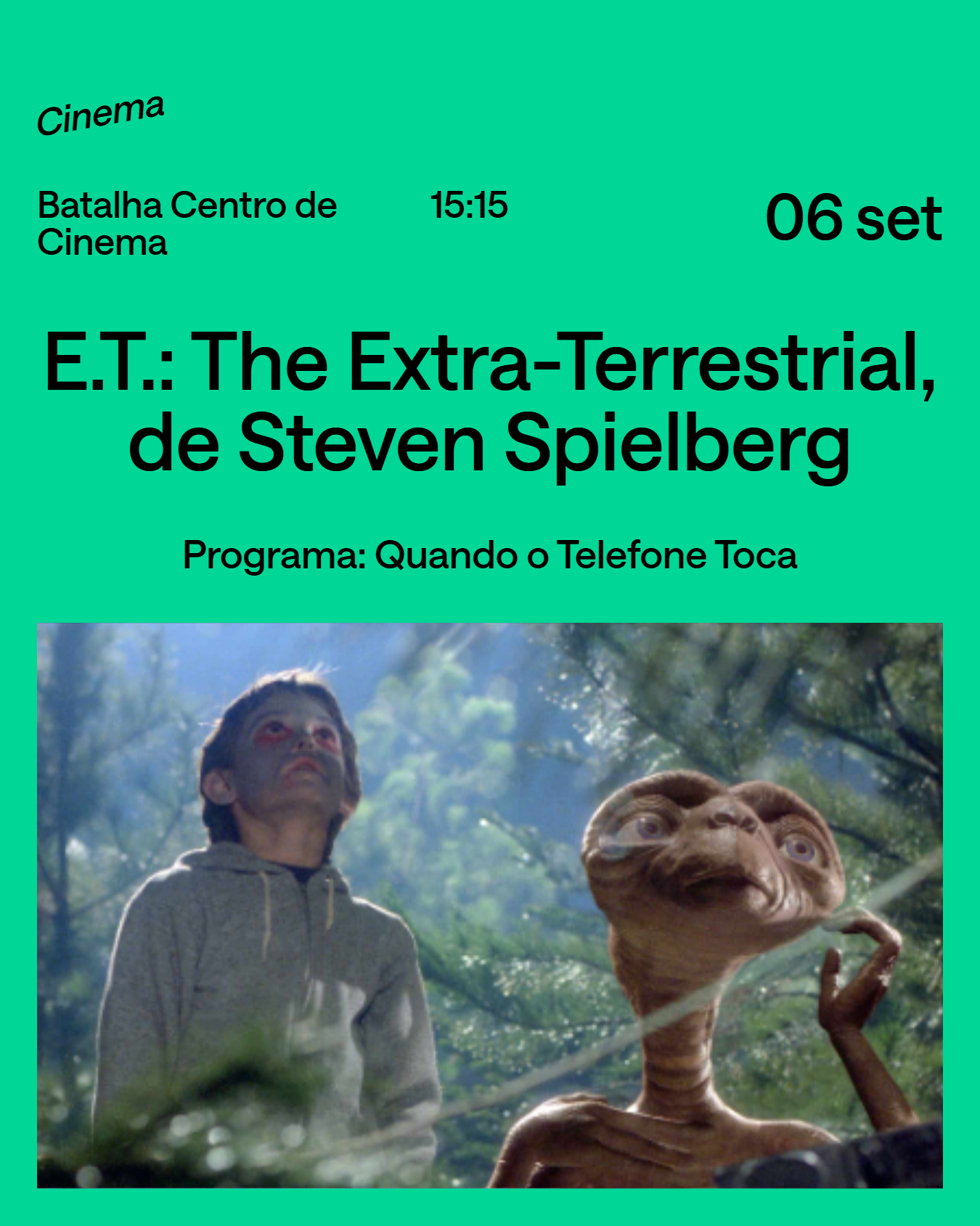
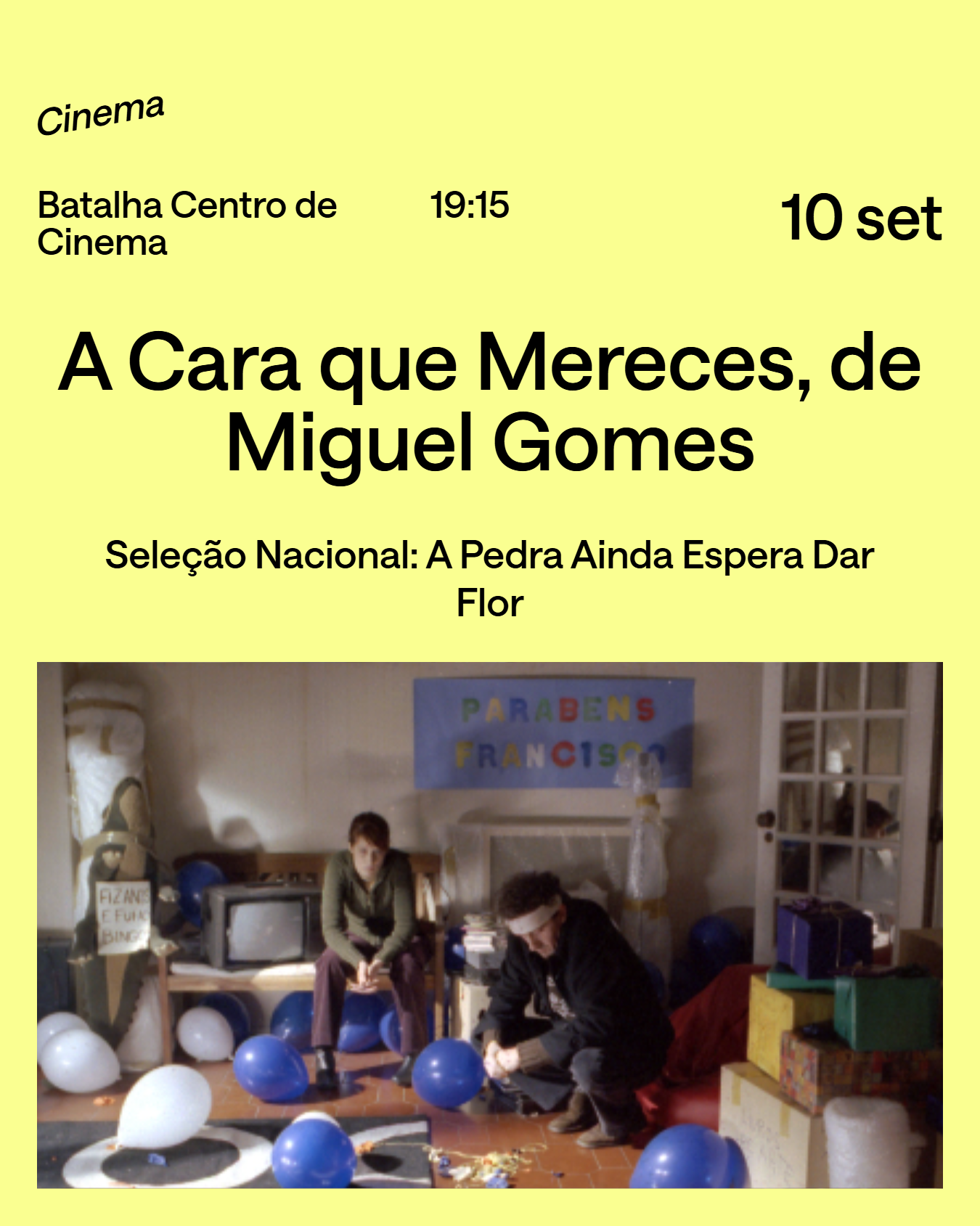
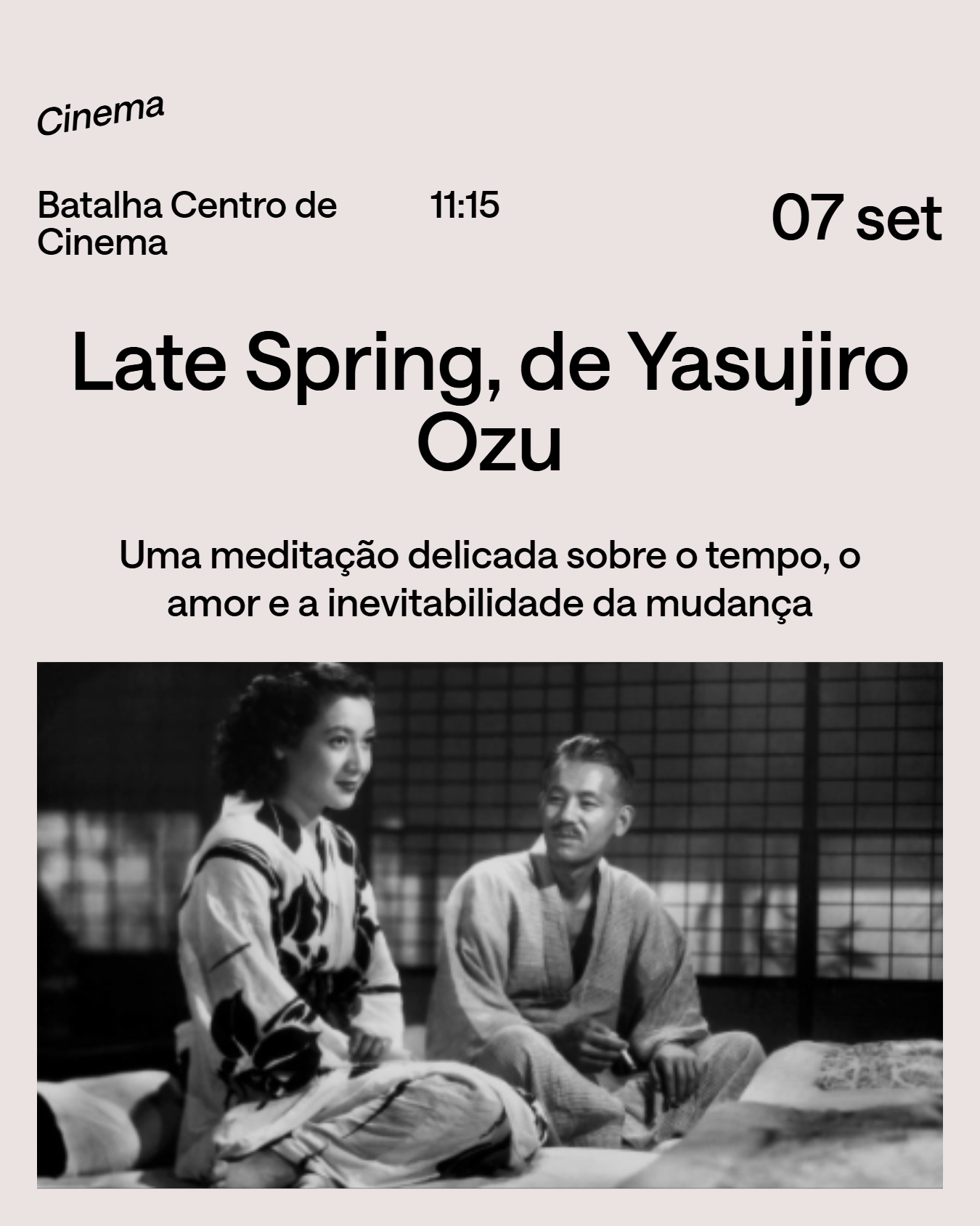
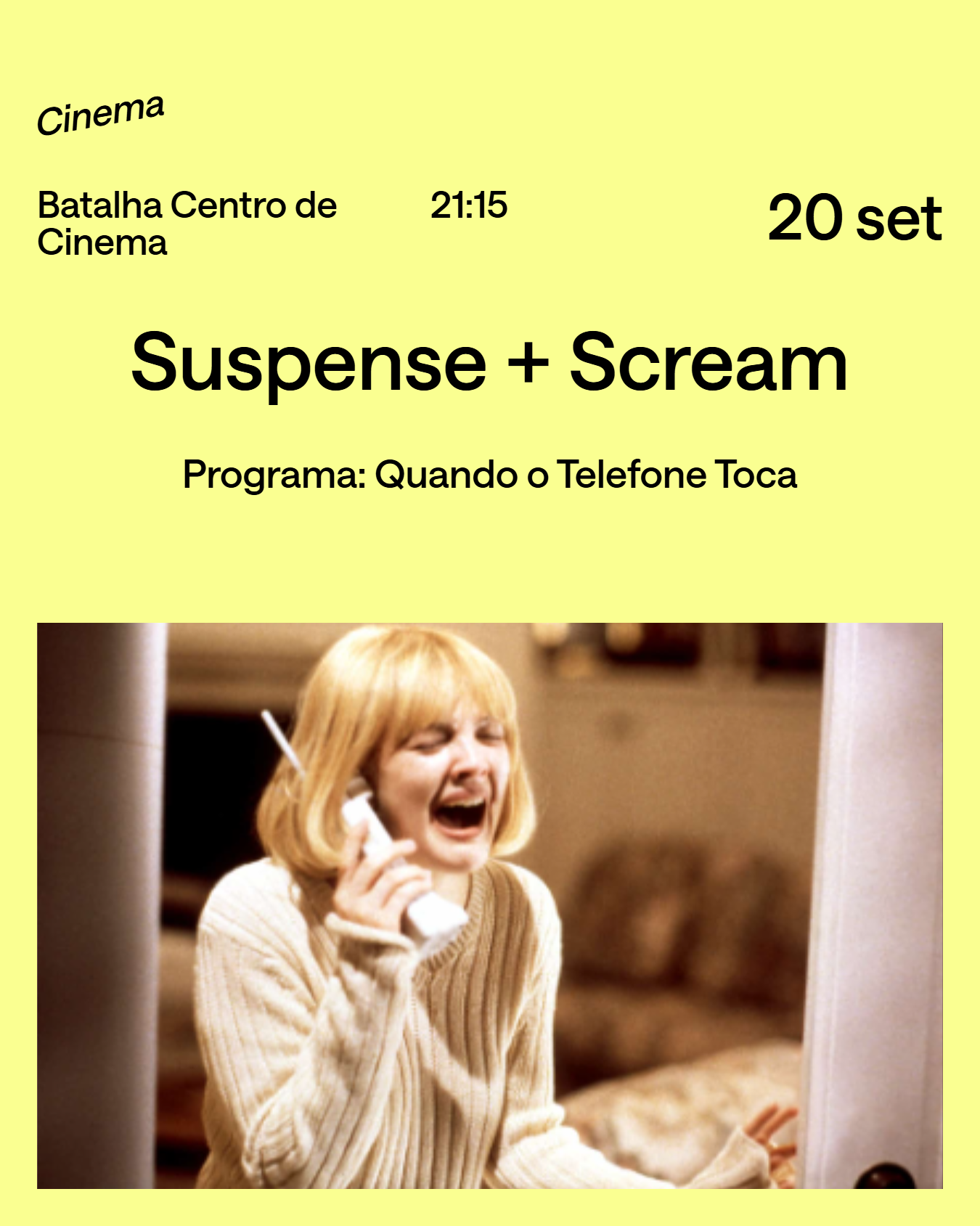
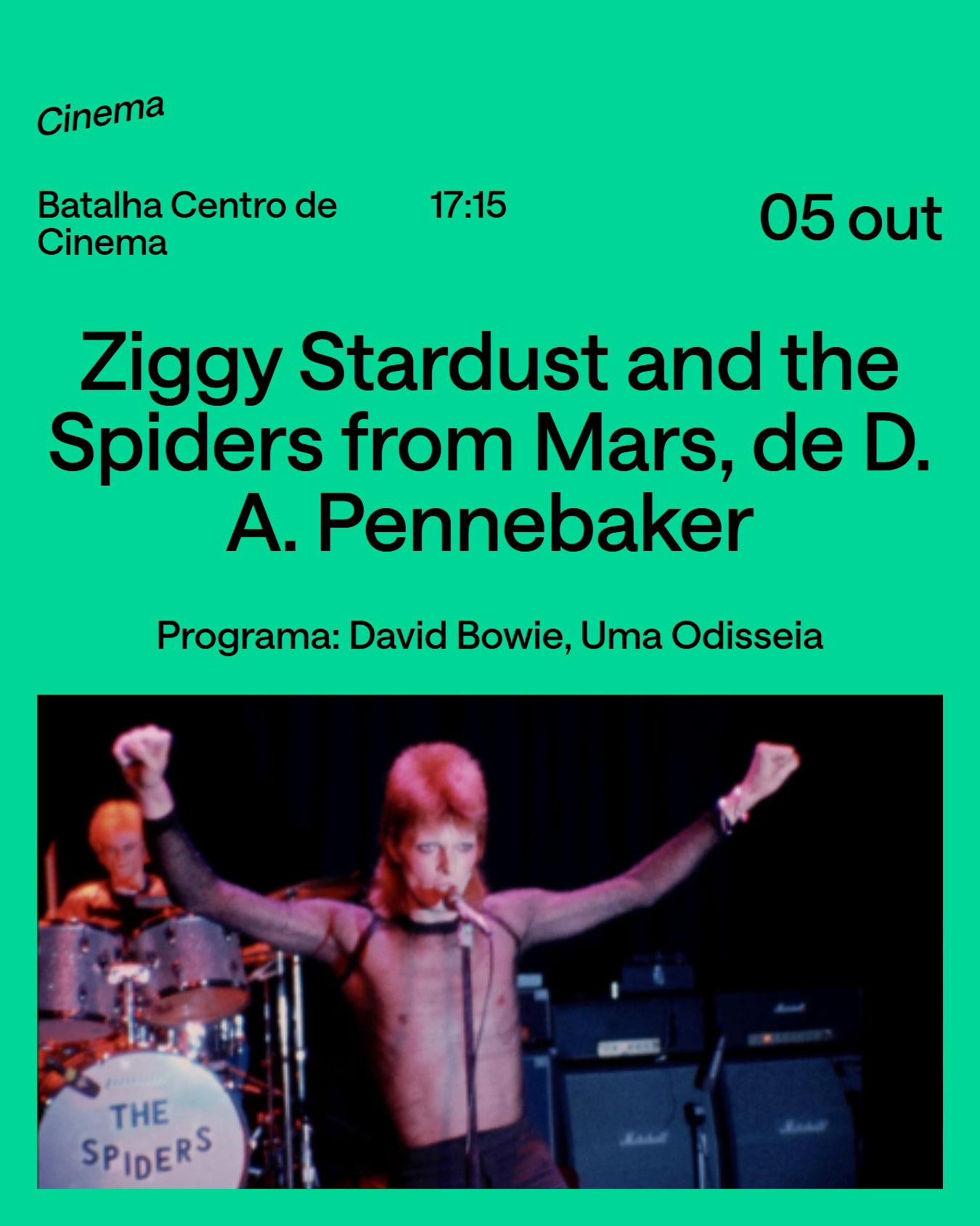
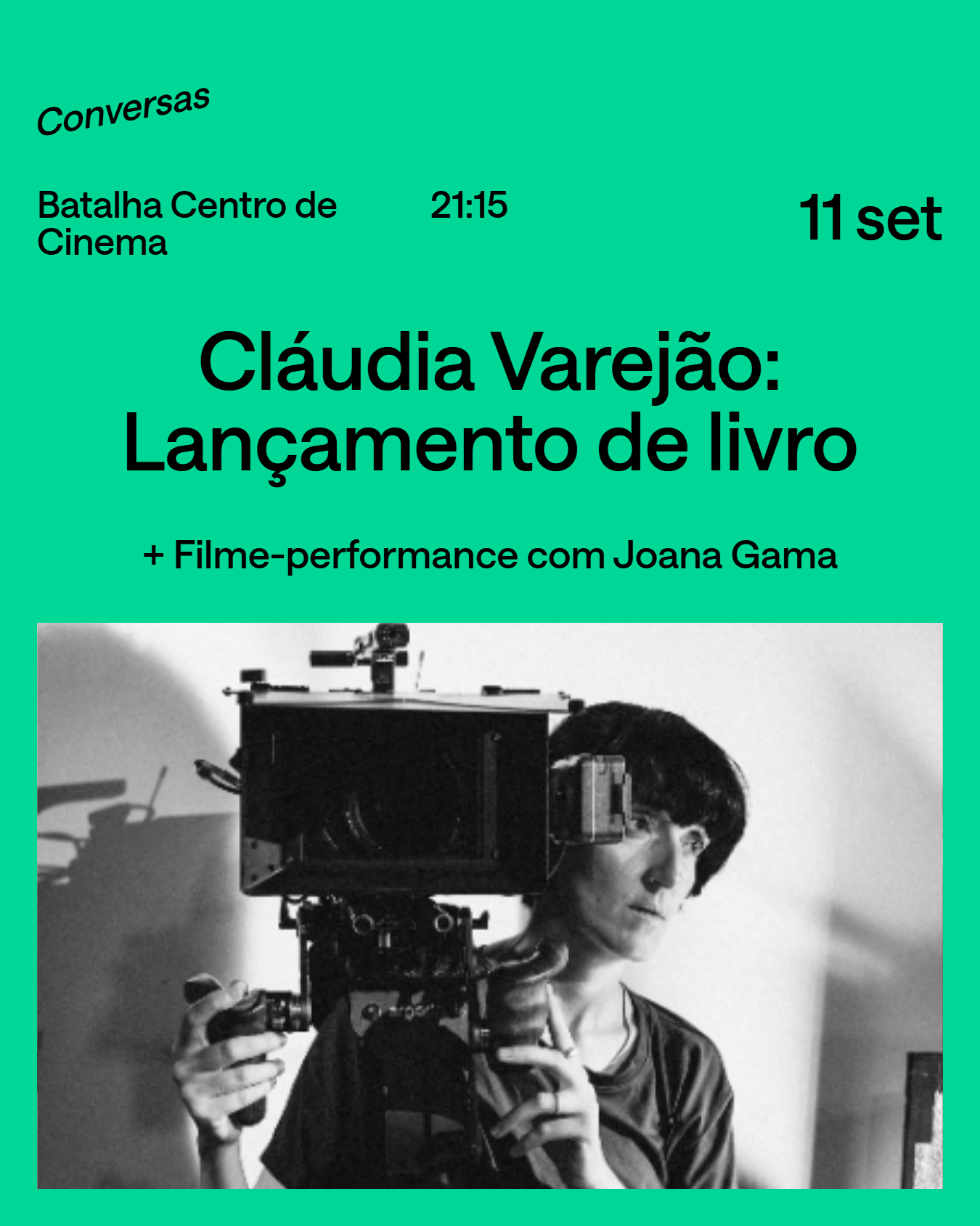
Rui Pereira — Diretor Artístico Adjunto da Casa da Música
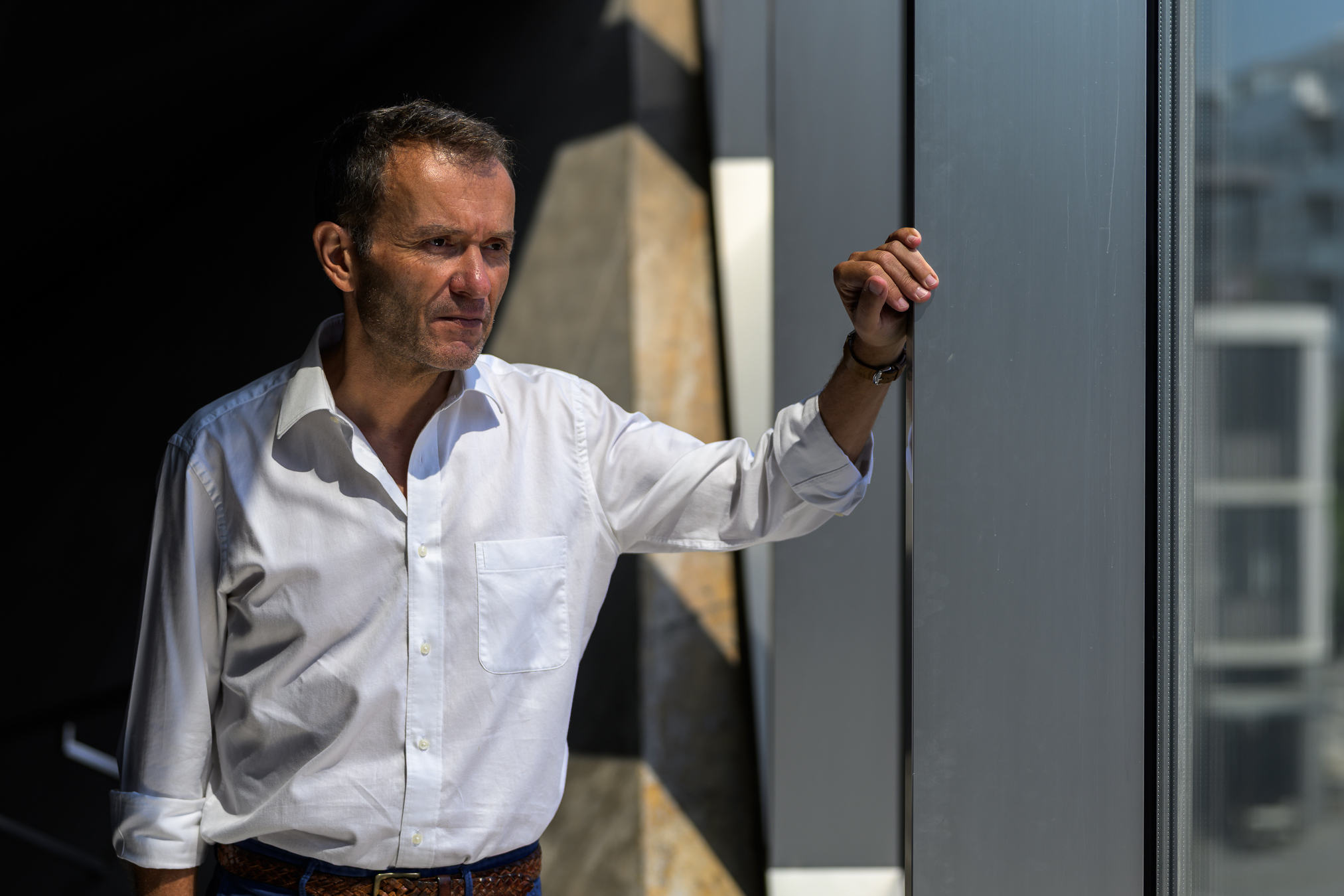
© Nuno Miguel Coelho
A nova temporada da Casa da Música arranca já em setembro, fora de portas, com concertos gratuitos ao ar livre. “Após as férias de verão, os Concertos na Avenida [dos Aliados], marcam o reencontro com o grande público”, diz Rui Pereira, diretor artístico adjunto da Casa da Música. A abrir este ciclo, a 5 de setembro, está a Orquestra Som da Rua, um coletivo com grande impacto social, criado, em 2009, a partir de uma parceria entre o Serviço Educativo e algumas instituições do Porto. “Na primeira sessão participaram apenas quatro pessoas e agora, 16 anos depois, vamos ter mais de 150 vozes em palco, com repertório criado pelo próprio grupo e que fala diretamente sobre a vida na cidade”.
No dia seguinte, 6 de setembro, é a vez da Orquestra Sinfónica do Porto Casa da Música atuar, com direção do jovem maestro francês Victor Jacob, distinguido como revelação nos prémios Victoires de la Musique 2023. “Este é, todos os anos, o concerto com mais público da temporada. É um grande momento para a orquestra porque os aproxima, muitas vezes, de quem nunca entrou numa sala de concertos, e para muitos será mesmo o primeiro contacto com uma orquestra ao vivo”, sublinha Rui. O programa propõe “uma viagem musical entre operetas vienenses, ritmos ciganos, paisagens caribenhas, e evoca a vida rural argentina, apresentada em danças orquestrais marcadas pelo imaginário dos pampas”, acrescenta.
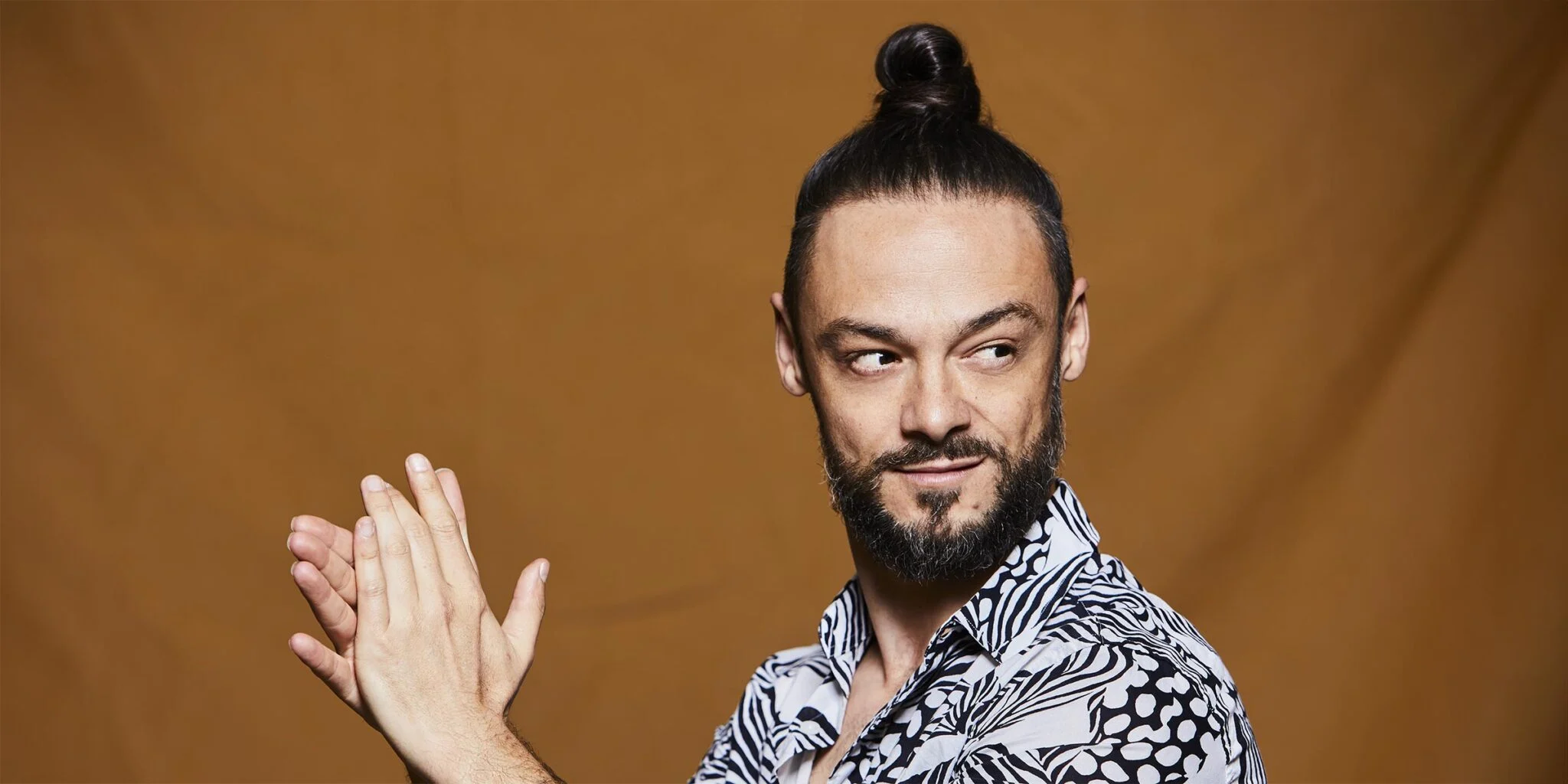
O concerto de Diego Guerrero marca a abertura de temporada na Casa da Música © DR
O regresso à Sala Suggia faz-se com dois grandes concertos dedicados ao flamenco, nos dias 23 e 24 de setembro. Primeiro, com Diego Guerrero e o seu novo disco Por la Tangente, nomeado para os Grammy da música latina. No dia seguinte, Estrella Morente e Rafael Riqueni, dois grandes nomes do flamenco, apresentam um trabalho conjunto profundamente enraizado na tradição. “São dois dias dedicados a um público muito fiel, que vive intensamente esta música e a sua história”, aponta Rui.
A 11 de outubro, o destaque vai para o Ciclo de Piano, com a estreia em Portugal da jovem pianista arménia Eva Gevorgyan. “Merece este destaque, é uma intérprete com mais de 40 prémios internacionais, foi finalista do concurso Chopin de Varsóvia e tornou-se figura central do documentário Piano Forte”, afirma Rui.
Também em outubro, regressa o Outono em Jazz, com um cartaz alargado. Há mais de 10 anos que a Casa da Música programa este festival que contribui para o panorama jazzístico da cidade. “Deixo o destaque para o trio Dave Holland e para a Maria Luiza Jobim, que vai cantar temas do pai, António Carlos Jobim”, revela.
Para os mais novos (e não só), a Casa da Música retoma a sua programação com várias oficinas, concertos para bebés, e outras atividades do serviço educativo. No dia 28 de setembro, a Orquestra Sinfónica do Porto Casa da Música apresenta o concerto comentado “Domingo com Rachmaninoff”. “É um concerto transgeracional, ideal para famílias. É conhecido entre os melómanos e maestros como ‘Rach 3’, e é considerado o concerto mais difícil de todo o repertório pianístico, o mais virtuoso, o que mais desafia o intérprete”, diz Rui. “Neste concerto de domingo, com a ajuda de um comentador e do nosso solista, vamos tentar desvendar o que é que um pianista tem de ultrapassar para o interpretar. Há quem desista só de começar a estudar”, observa. “Depois disso, teremos o concerto para que todos possam apreciar a beleza da música.”
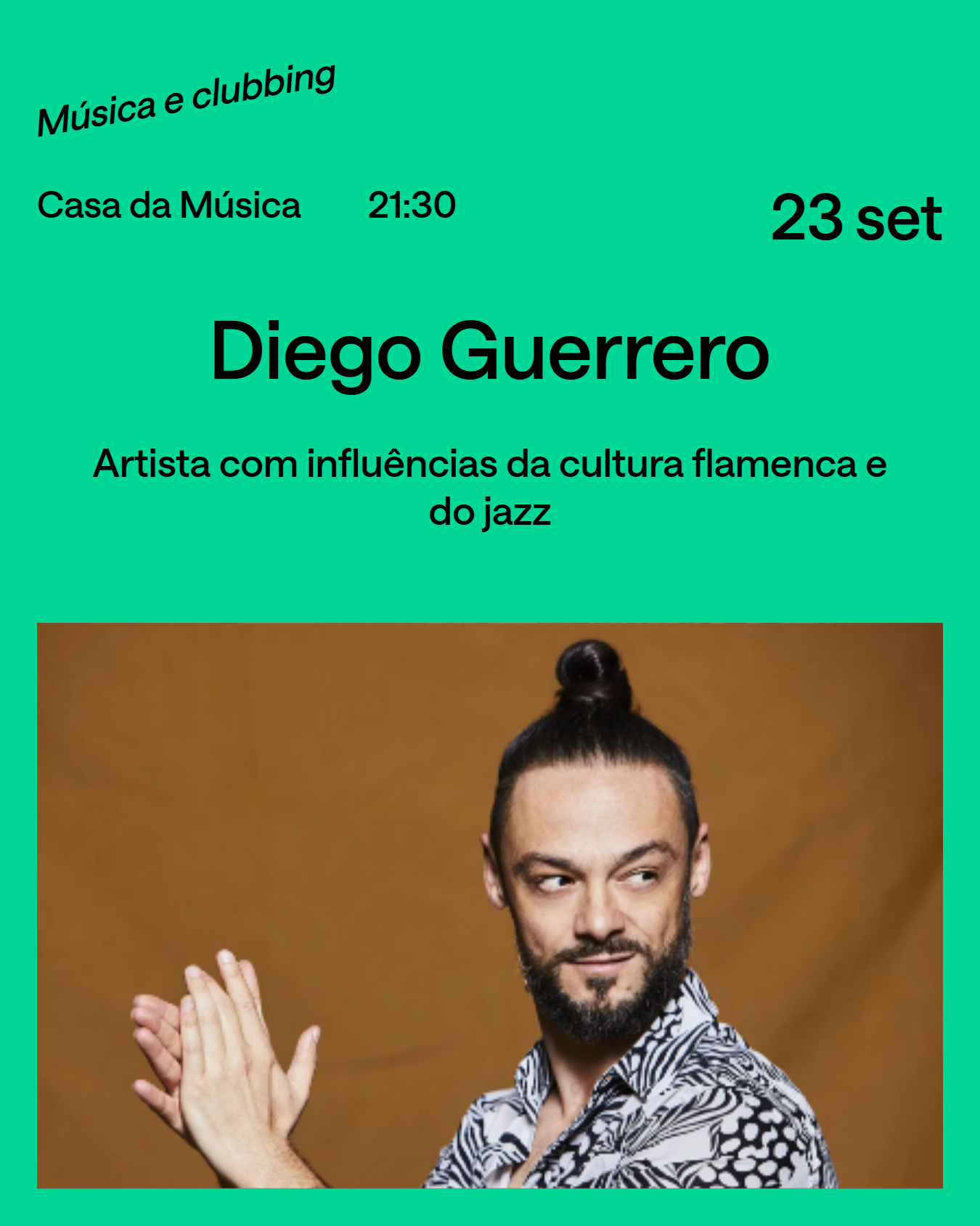
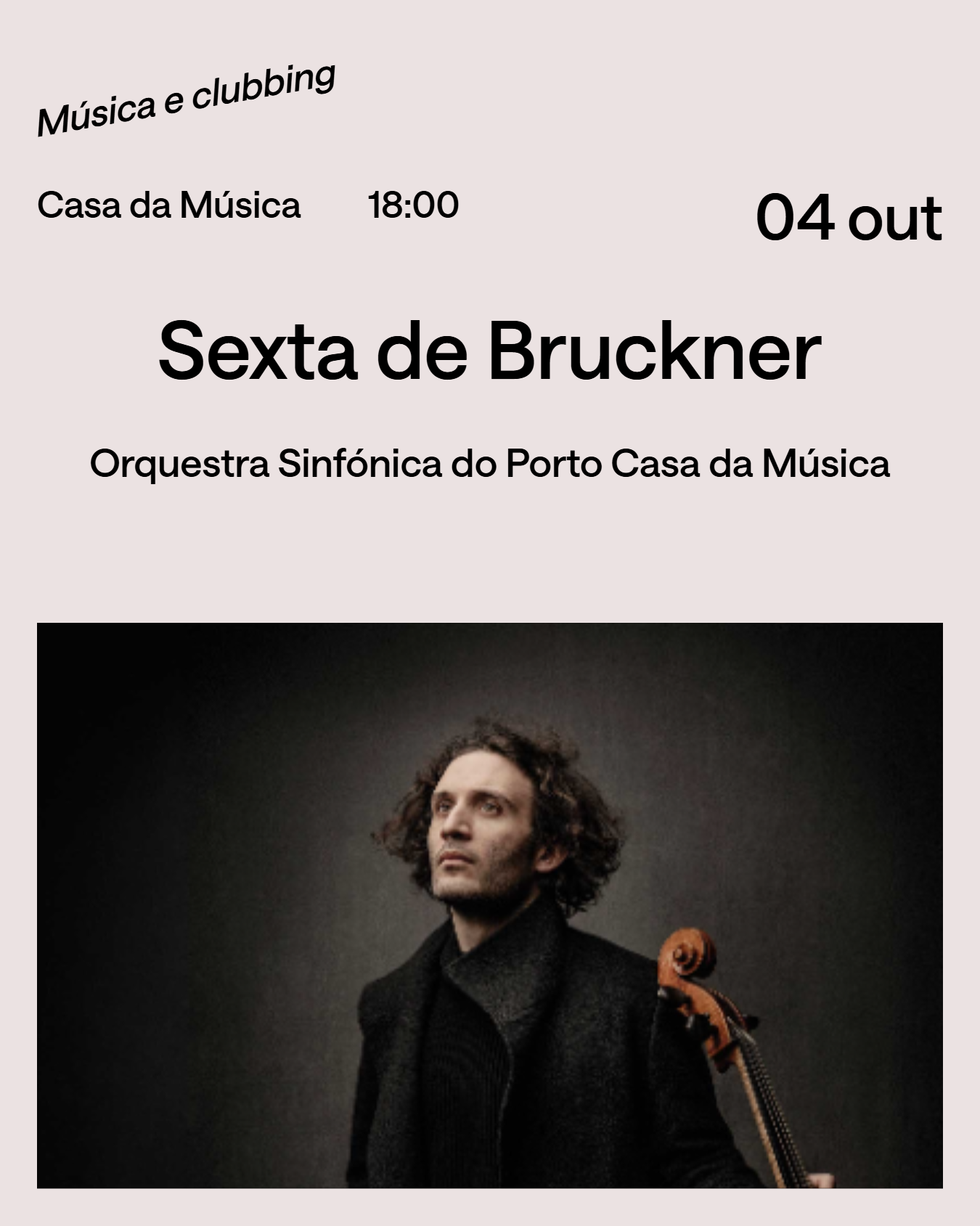
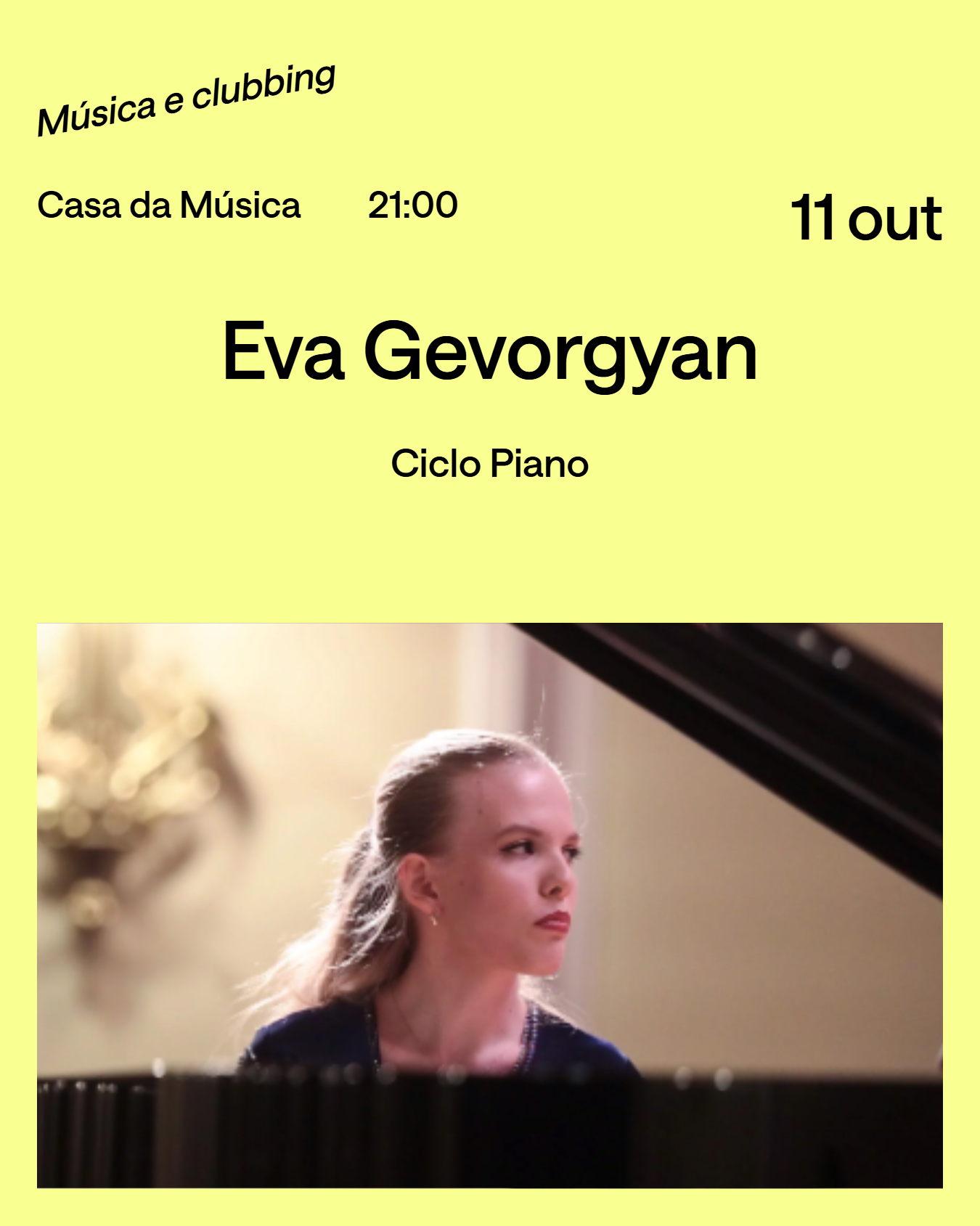
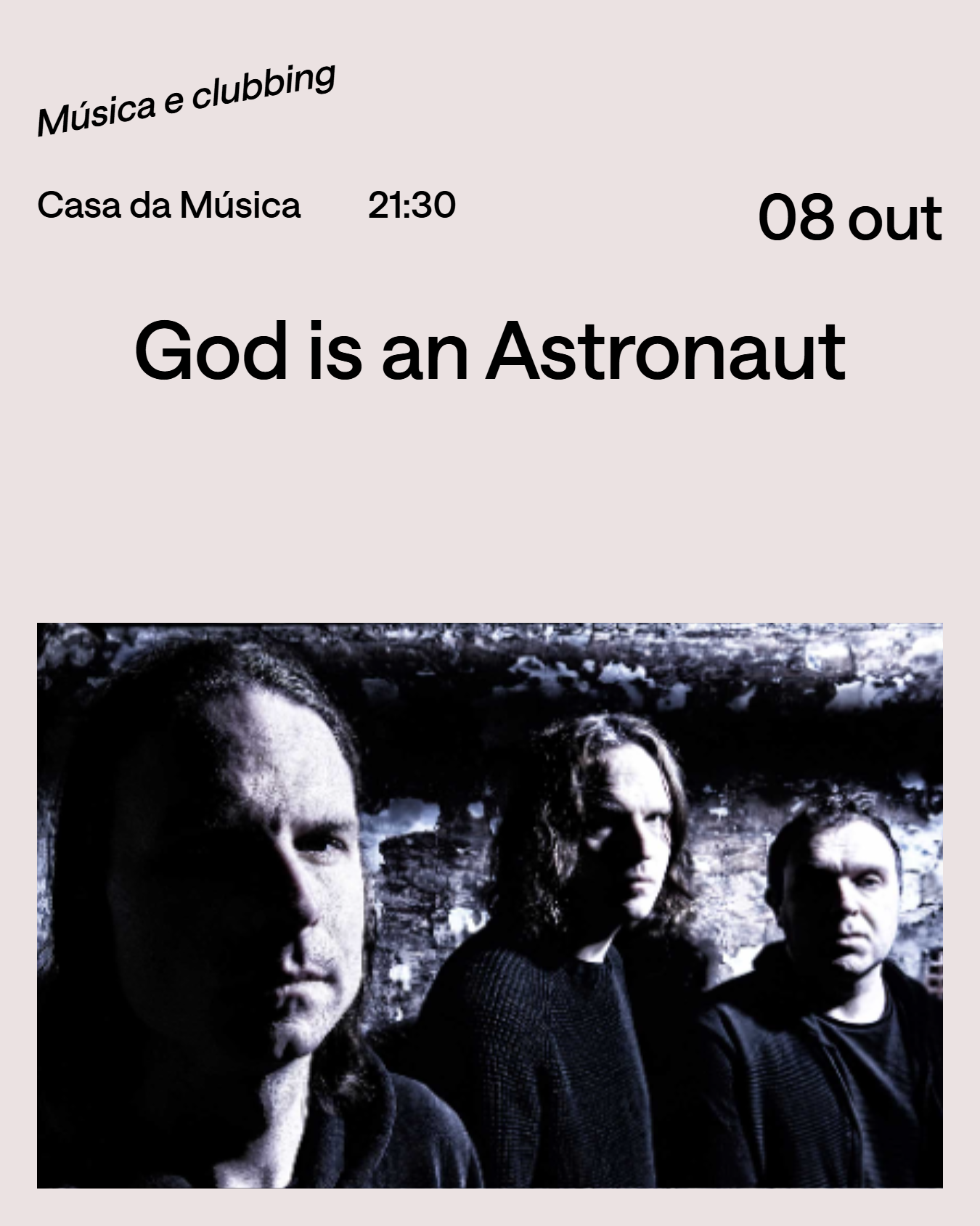
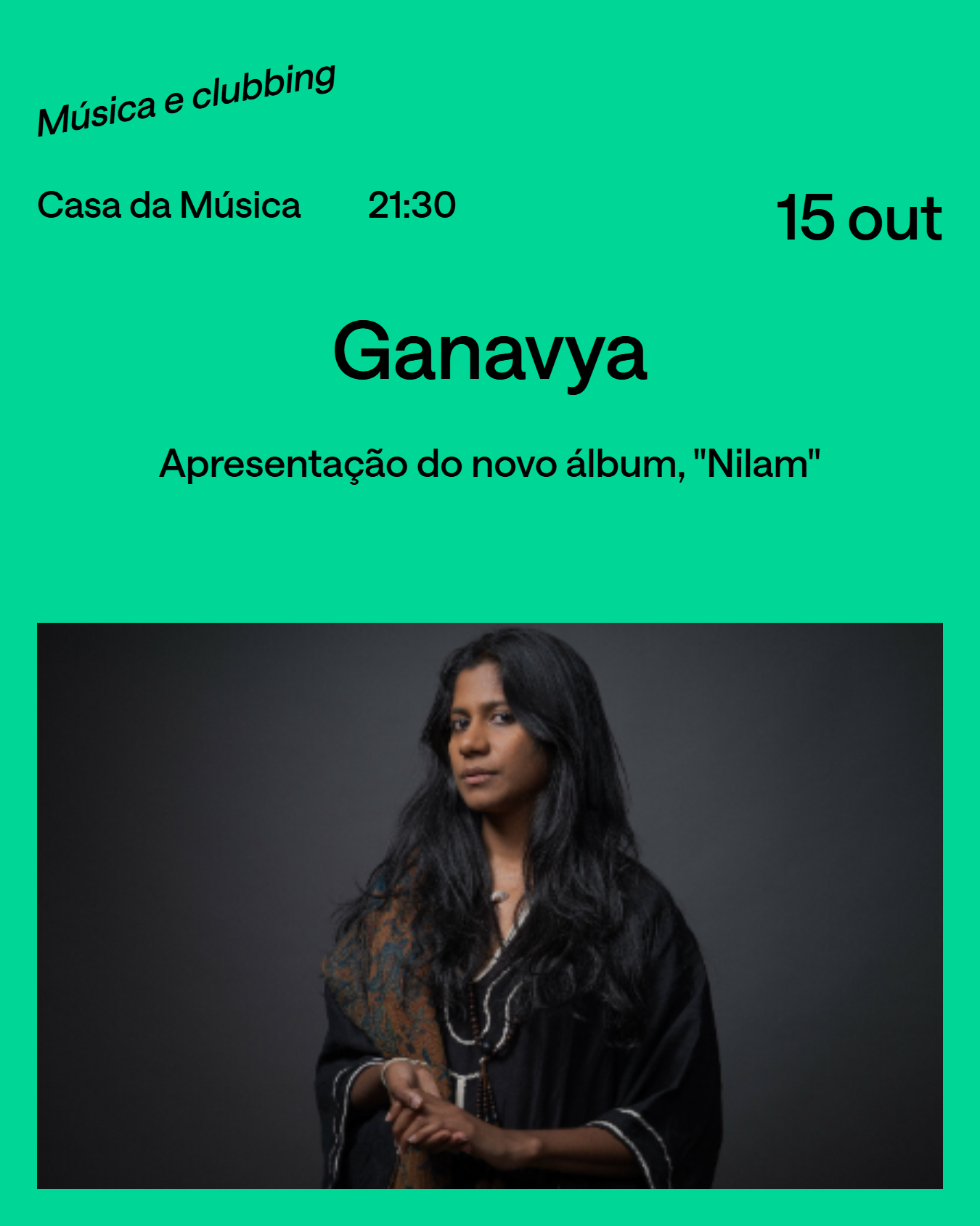
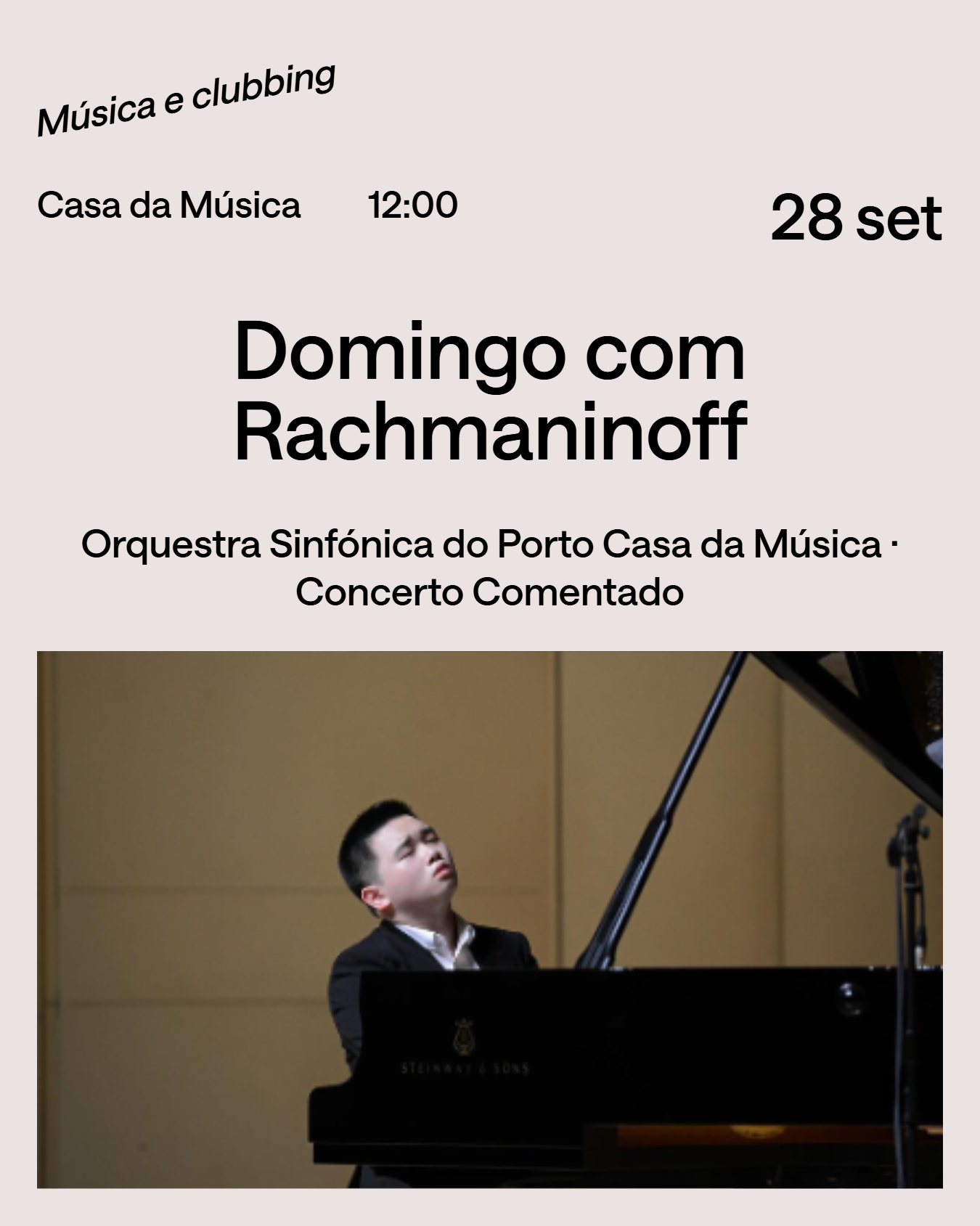
Inês Pina — Coordenadora do Serviço Educativo Artes de Serralves
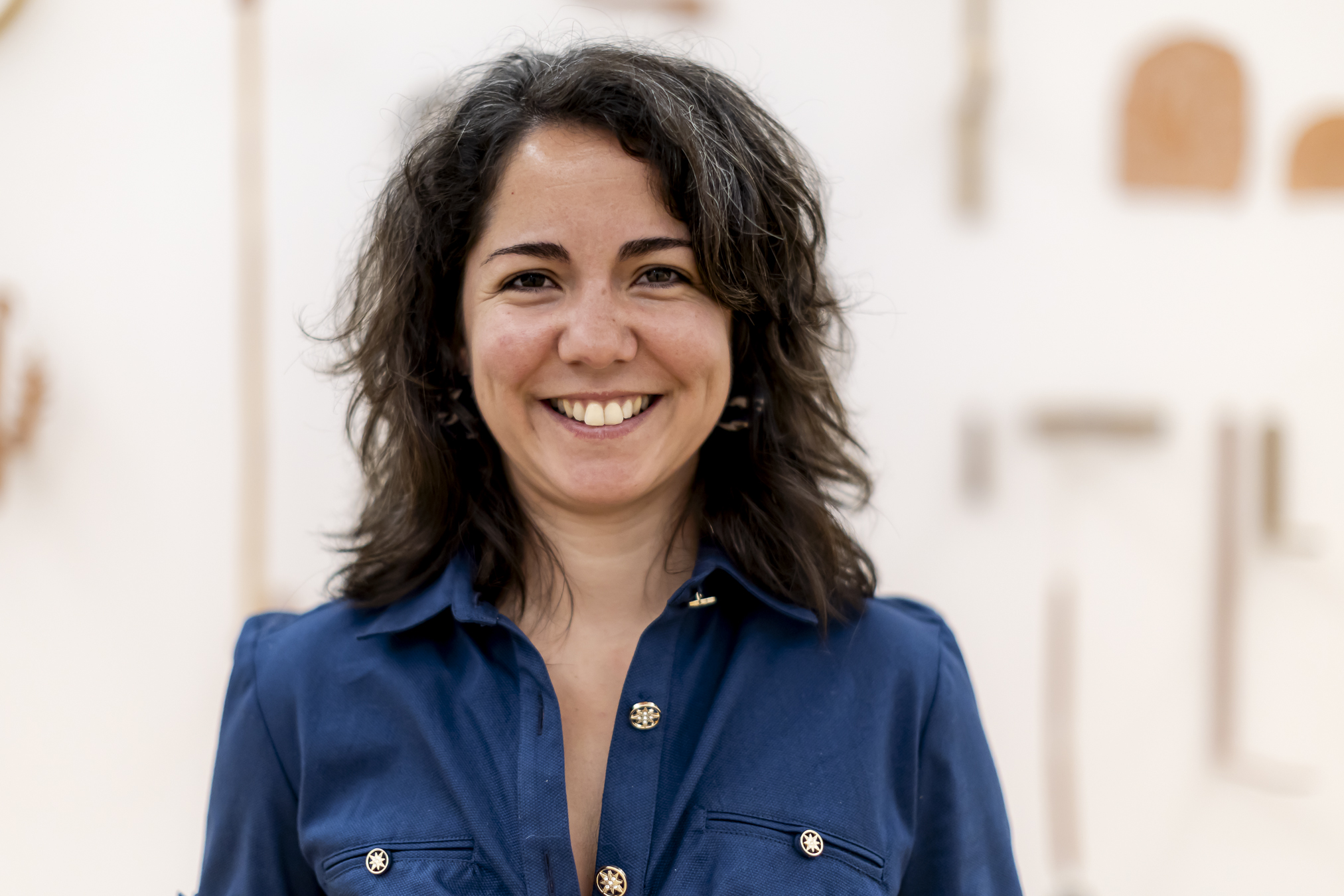
© Ana Carreira
É com o regresso às aulas que desperta em Serralves a nova temporada: a partir de setembro, o Museu retoma a sua atividade mais intensa, com propostas para diferentes públicos, mas com atenção particular às crianças, famílias e aos jovens. “Temos uma programação bastante vasta, no fundo é o início da nossa temporada, principalmente para o público jovem e para as crianças”, explica Inês Pina.
O arranque faz-se logo a 13 de setembro, com o regresso das atividades para famílias, no eixo das artes, que se cruzam com as exposições em cartaz. O mote vem das artes visuais, do cinema e da arquitetura – os três eixos principais sobre os quais se constroem as atividades. “Começamos com uma atividade que tem o chapéu Cinema-Mentira, que está relacionada com o cinema, e vai debruçar-se sobre a exposição Pequeno Teatro do Mundo, do Luís Miguel Cintra”, adianta Inês.
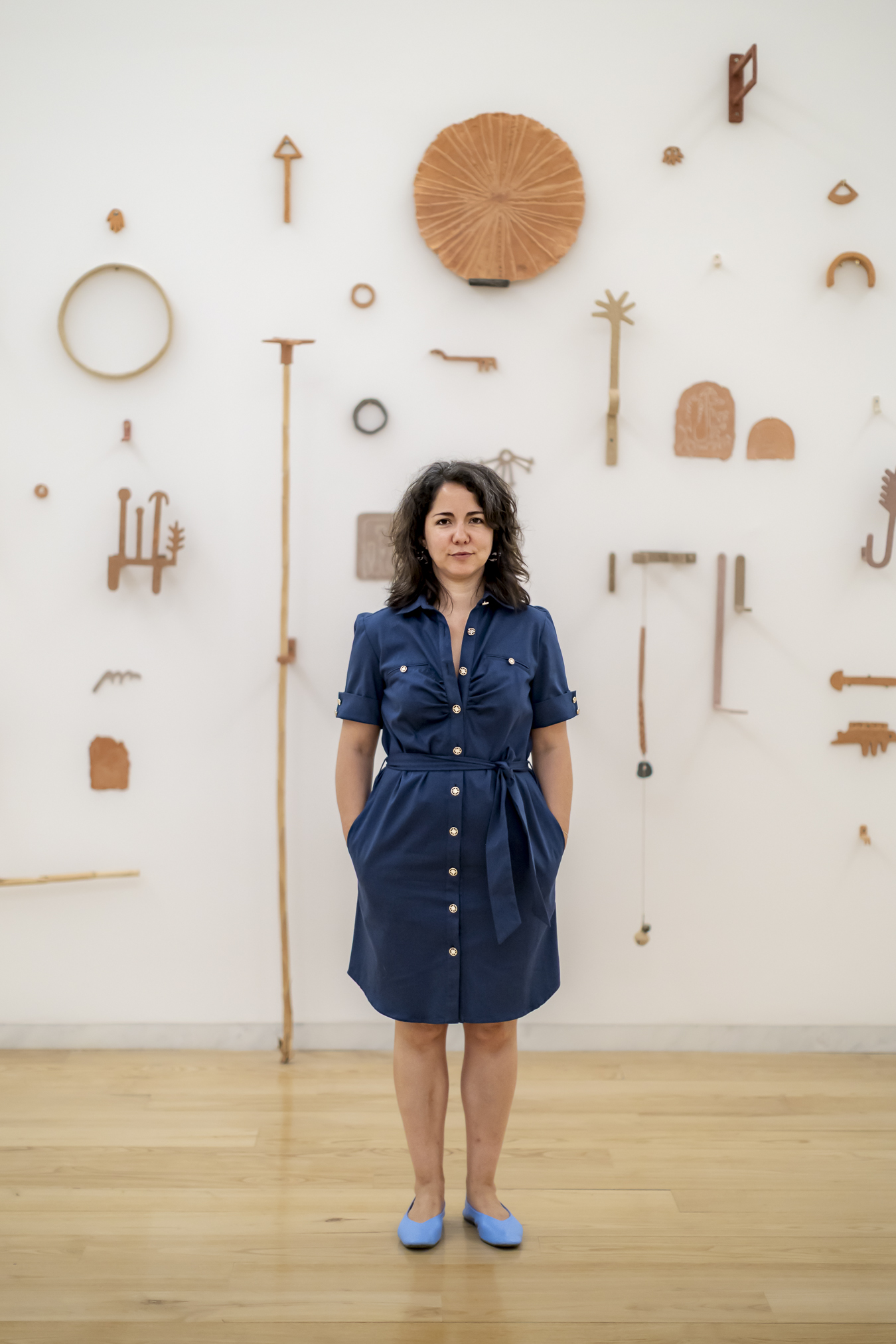
© Ana Carreira
No final do mês, o parque transforma-se num grande palco ao ar livre com a Festa do Outono, marcada para os dias 27 e 28 de setembro. “É um evento gratuito e já esperado pelo público em que celebramos o Parque de Serralves, a sua biodiversidade e o património, através de concertos, oficinas, circo e outras atividades. É uma forma de celebrar a chegada do outono.”
Mas nem só de celebrações se faz a temporada. O Saber do Cinema, programa que decorre ao longo do ano em parceria com o Serviço Educativo, regressa em outubro com nova edição e novo tema: a reciclagem. Com curadoria de Regina Guimarães e Saguenail, as sessões são uma verdadeira escola de espectadores. “Convidamos as pessoas a ver um filme que não é anunciado, para que depois se possa discutir em conjunto”, diz Inês. “Este ano, o tema é a reciclagem – vamos rabalhar a partir de filmes que reutilizam partes de obras de outros realizadores.”
A programação prolonga-se até novembro, quando têm lugar as já habituais Siza Talks, nos dias 12, 13 e 14. Trata-se de um encontro de dimensão internacional, dedicado à arquitetura e à prática de Álvaro Siza, com convidados de referência de todo o mundo.
No fundo, há um tema que atravessa todas estas atividades, ainda que por vezes de forma subtil. “No Serviço Educativo, temos um tema central que é o Despertador. Está mais ligado às escolas, mas vai permeando cada uma das atividades que fazemos”, explica Inês. O conceito do despertador cruza-se com as urgências do tempo presente, sobretudo ambientais, mas também com a própria missão de Serralves. “É um espaço ligado ao agora. Com as exposições que temos, cerca de 20 por ano, parece-nos absolutamente urgente falar do que está a acontecer fora destas paredes. O museu, com a arquitetura de Siza, convida-nos a olhar para o exterior, e a perceber que o que está dentro reflete também o que vivemos hoje.”
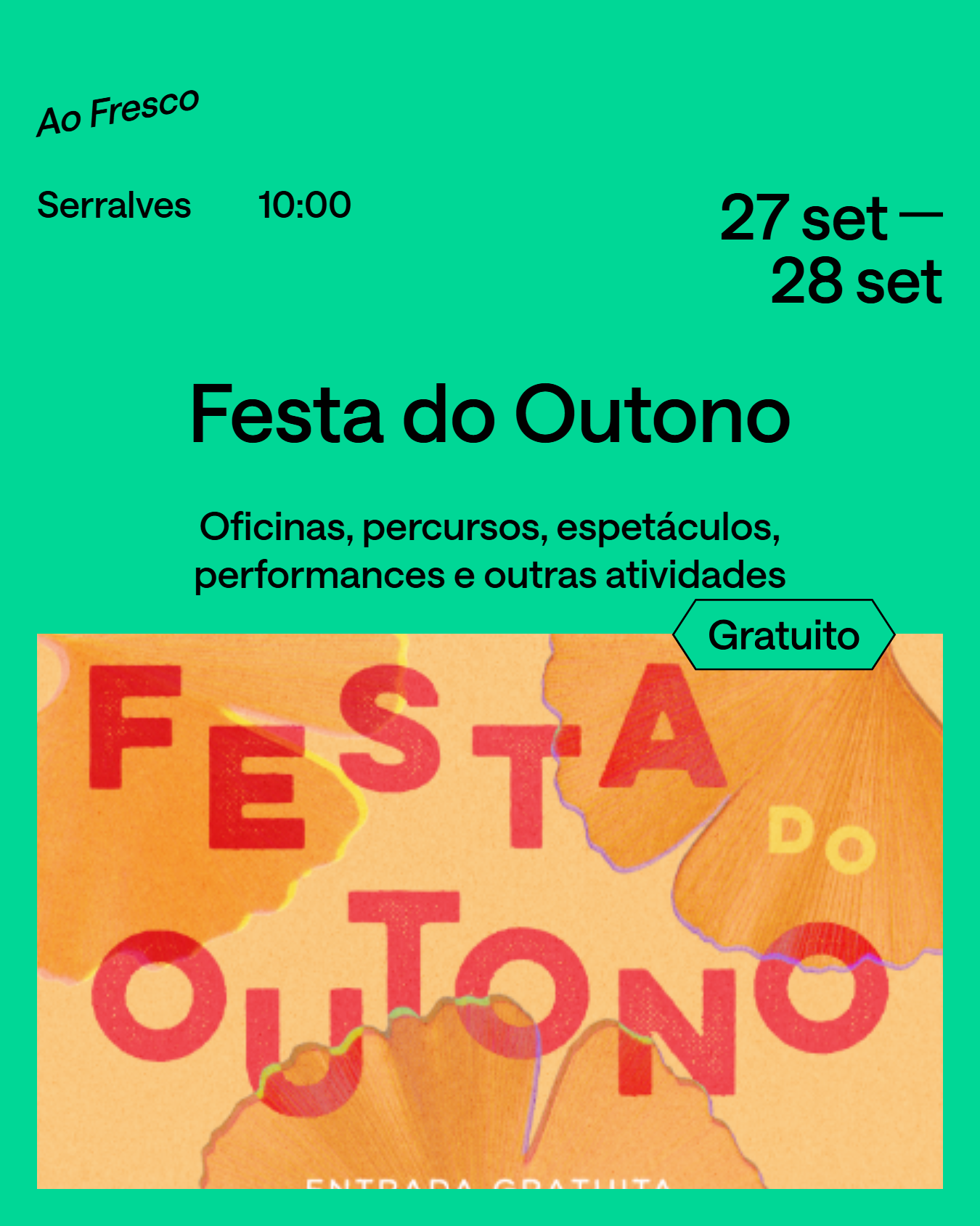
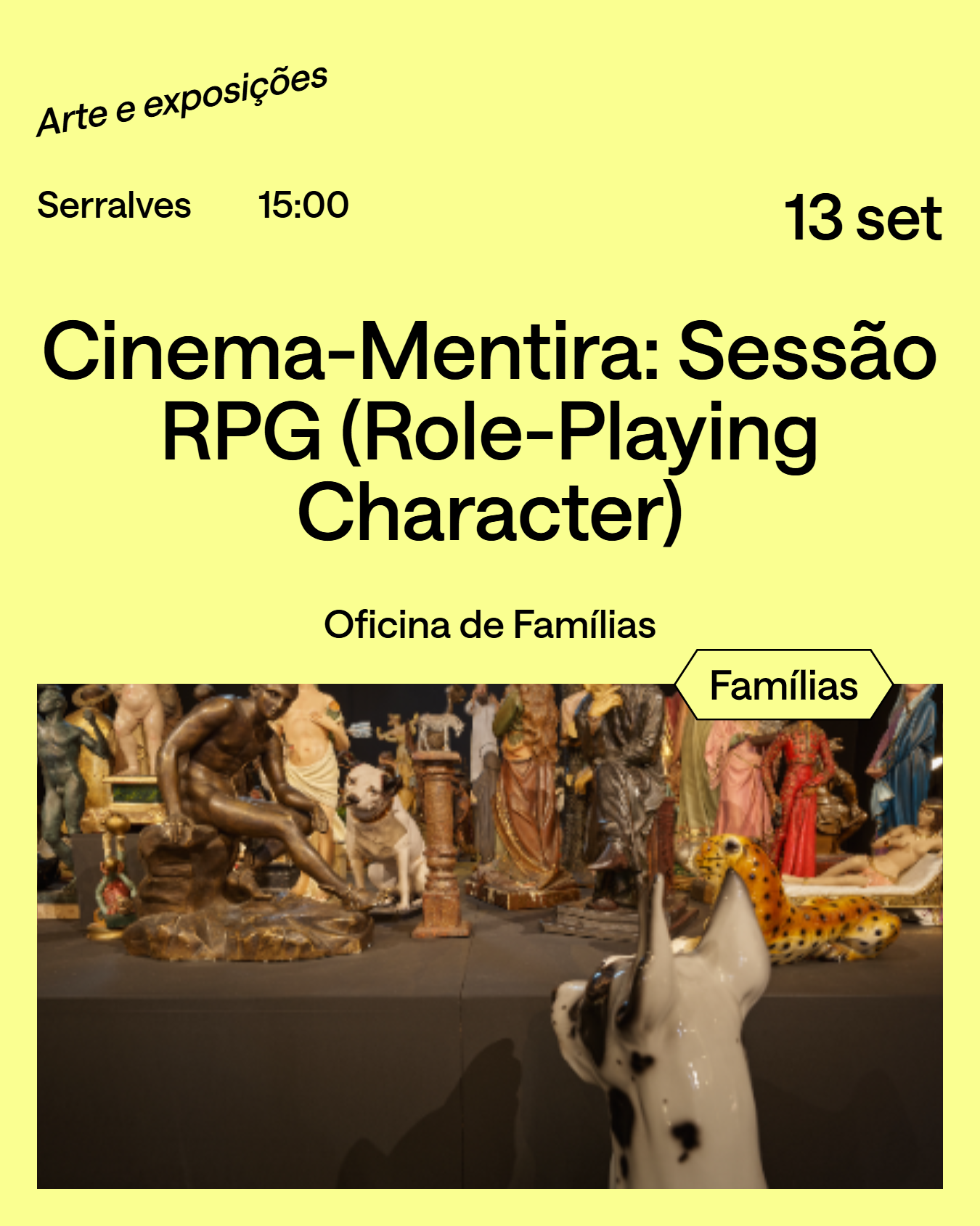
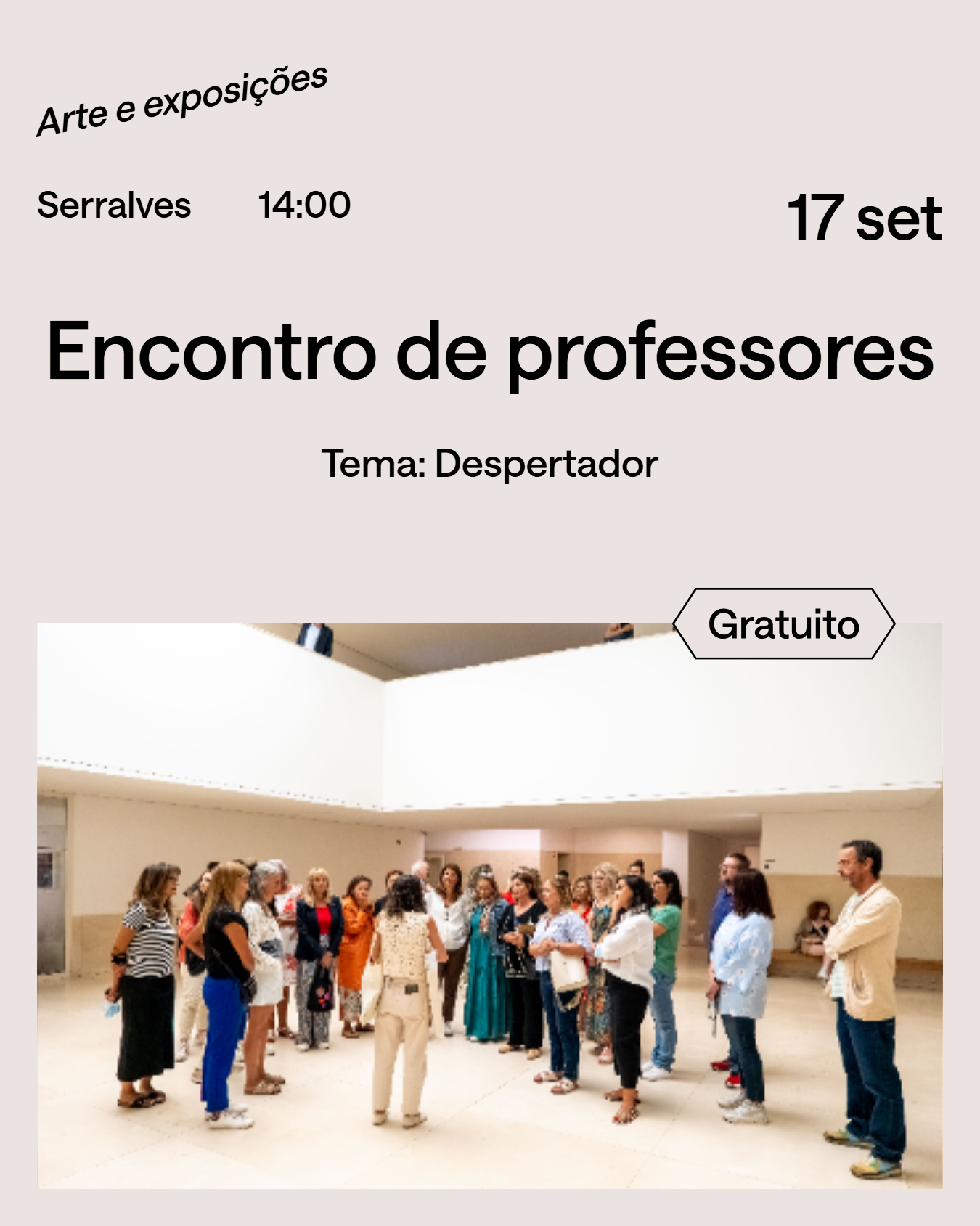
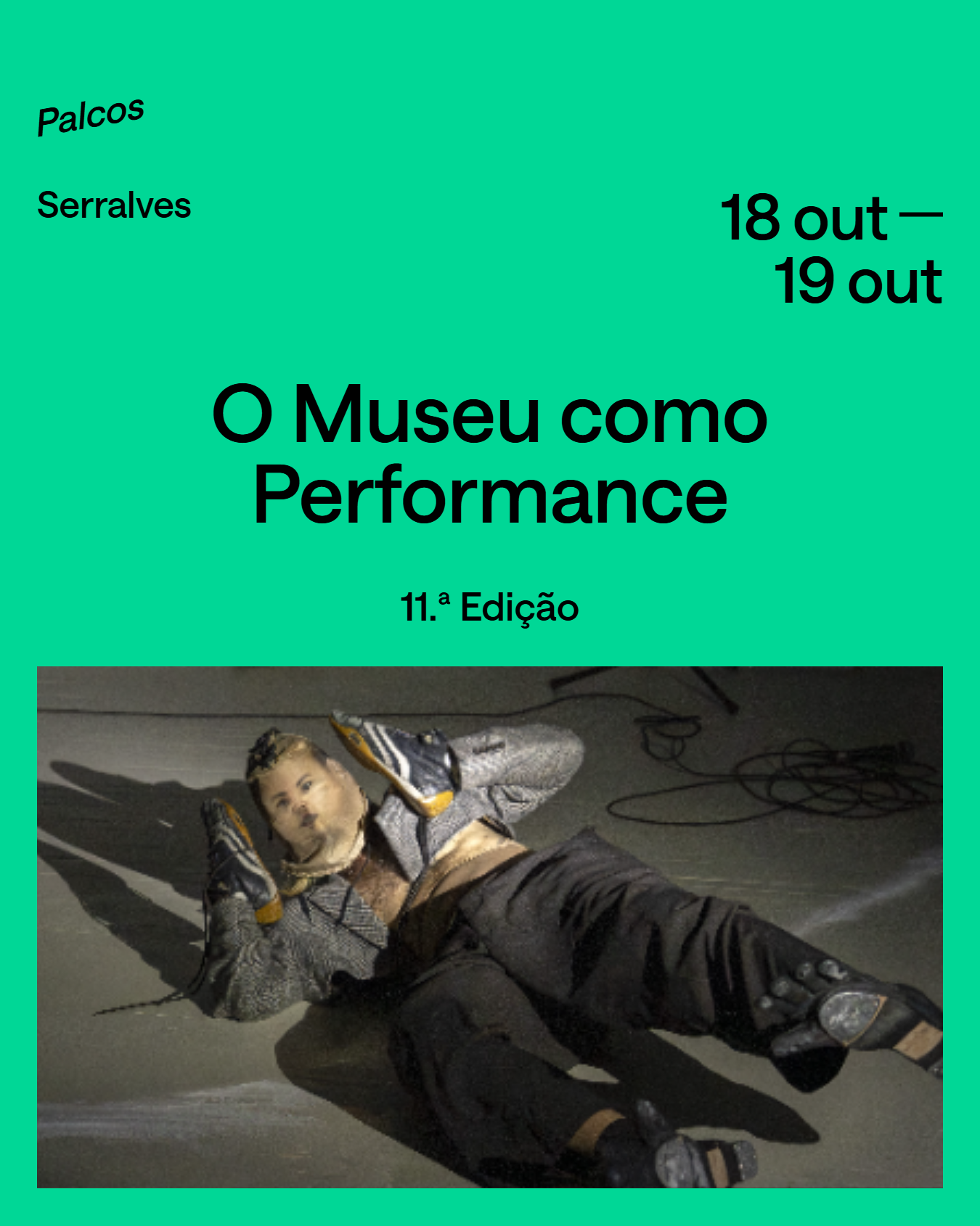
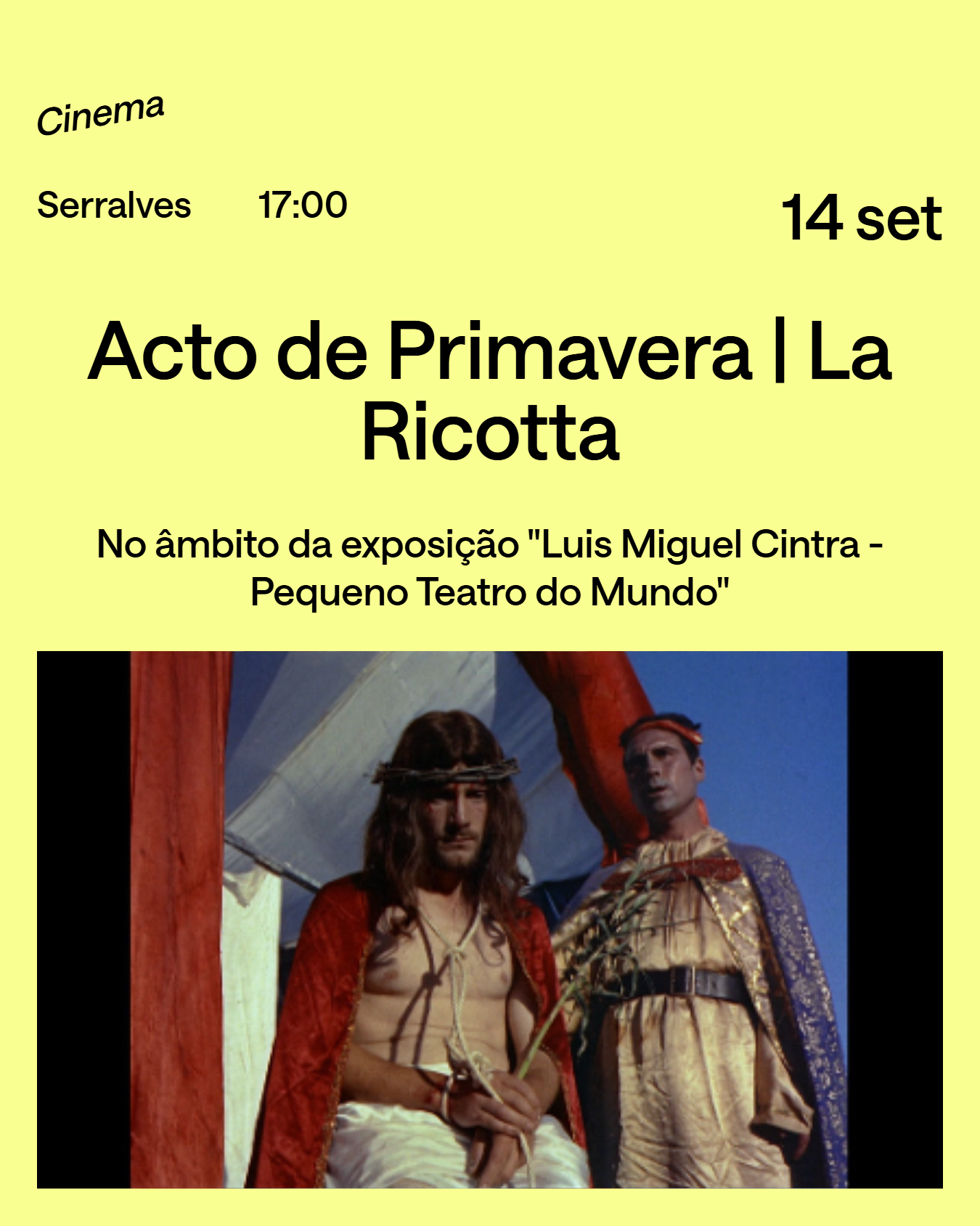
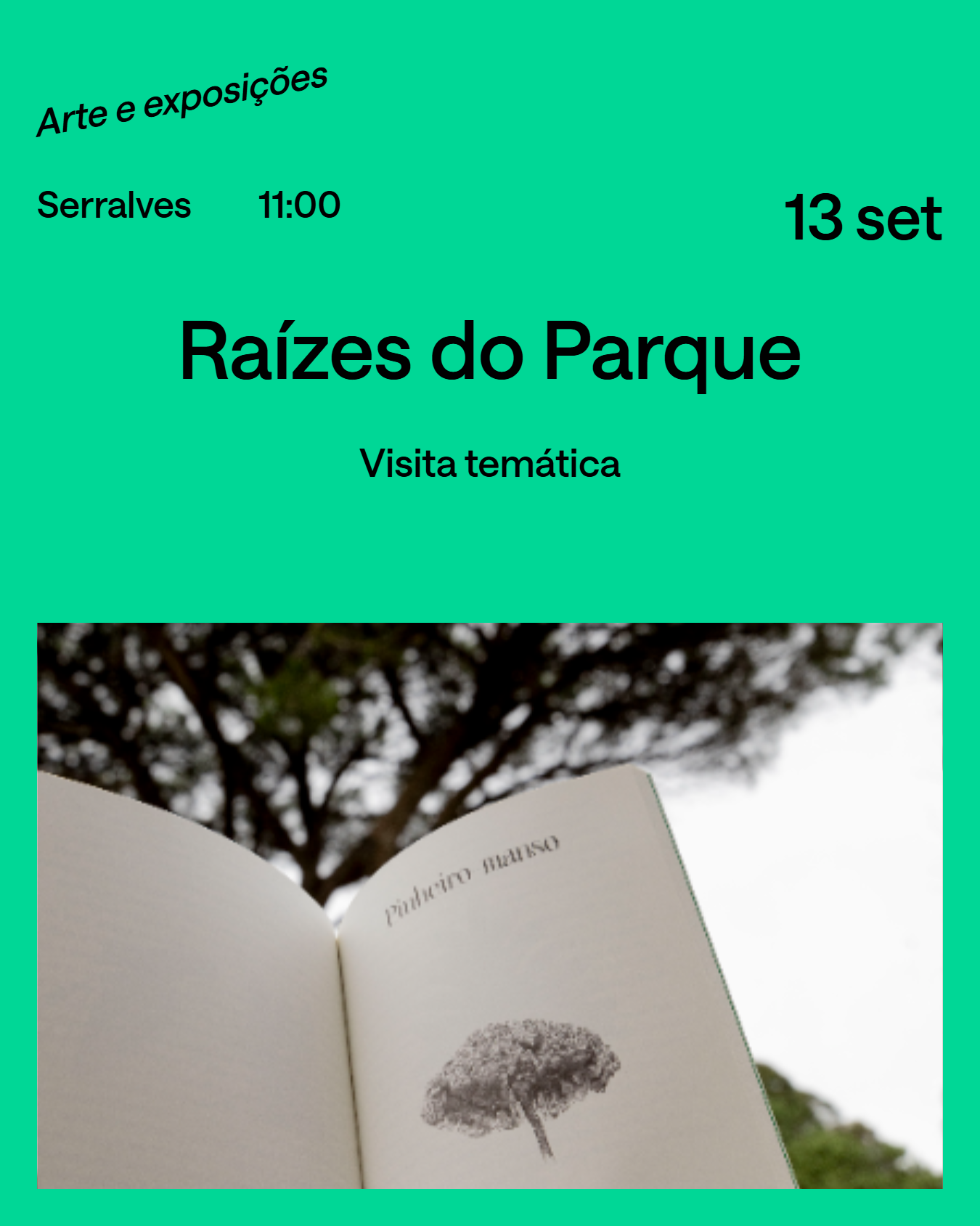
Share
FB
X
WA
LINK
Relacionados


